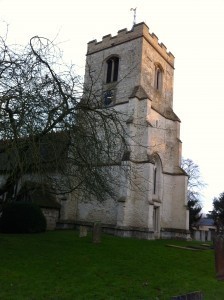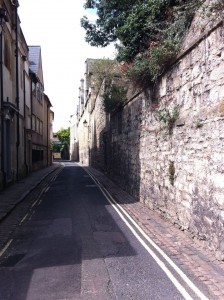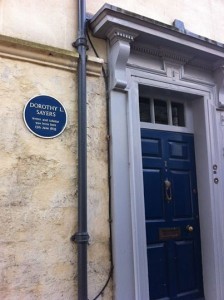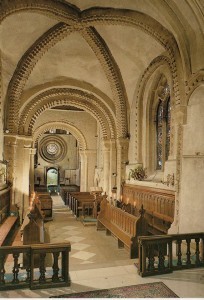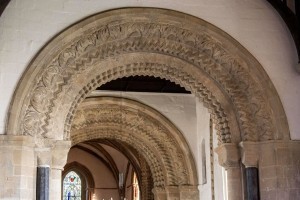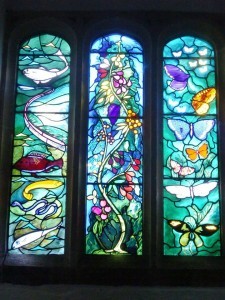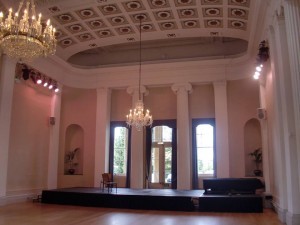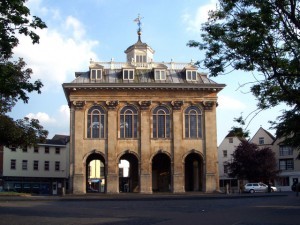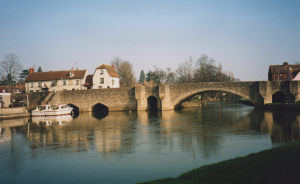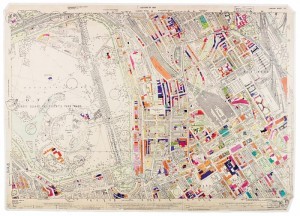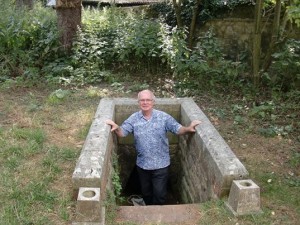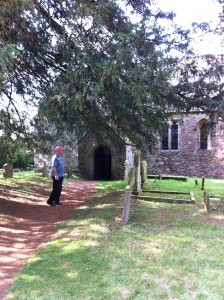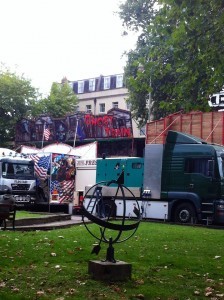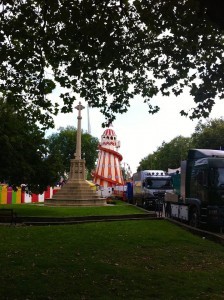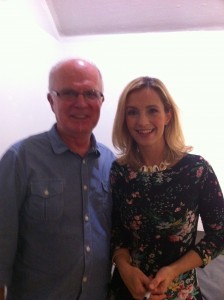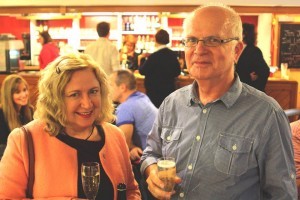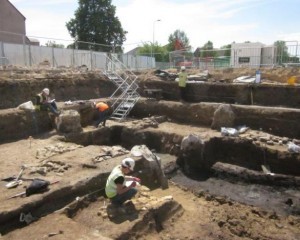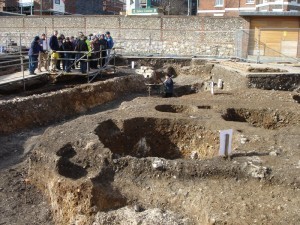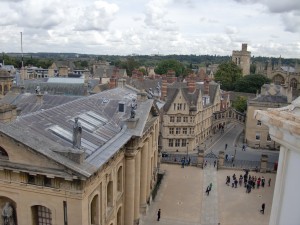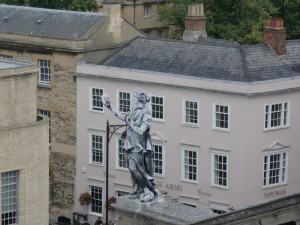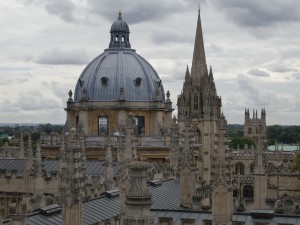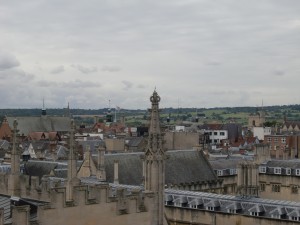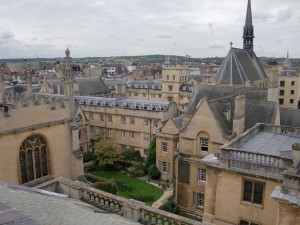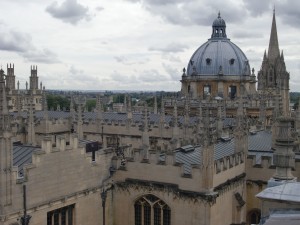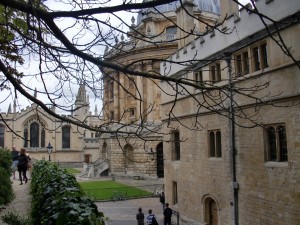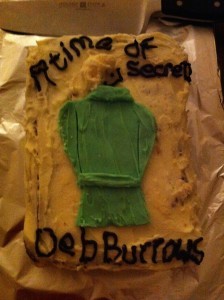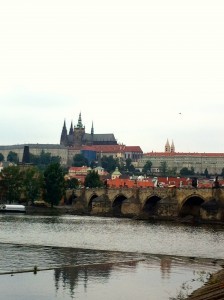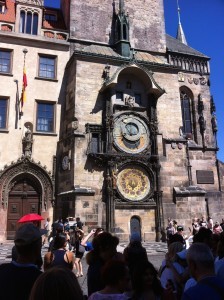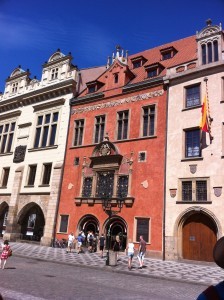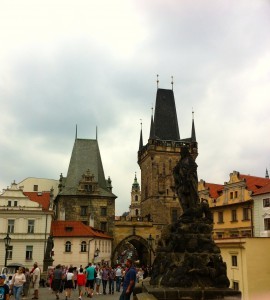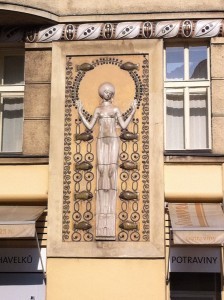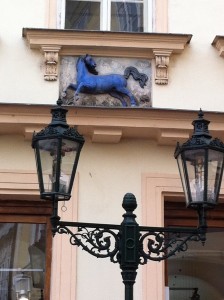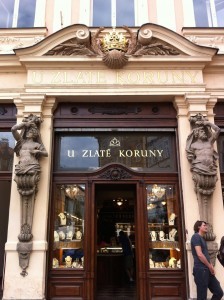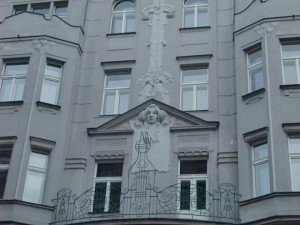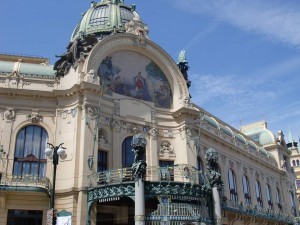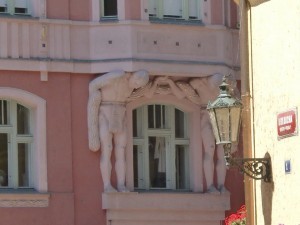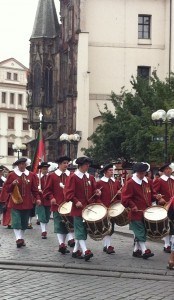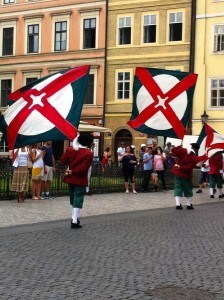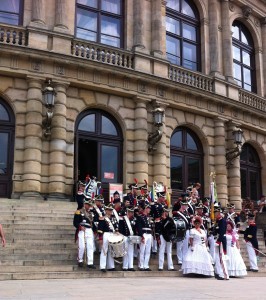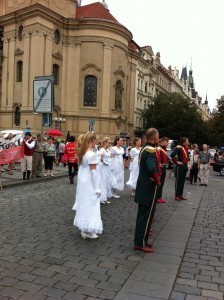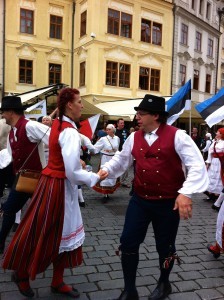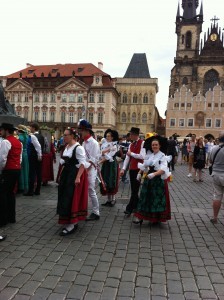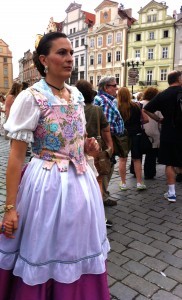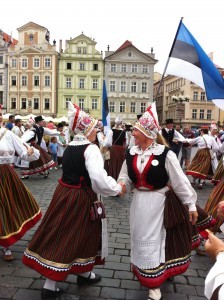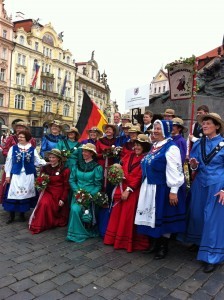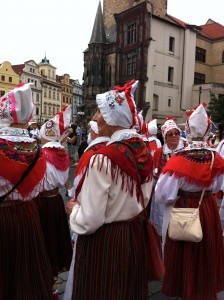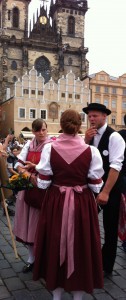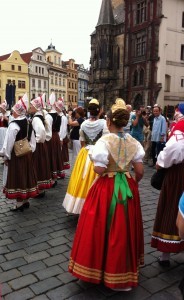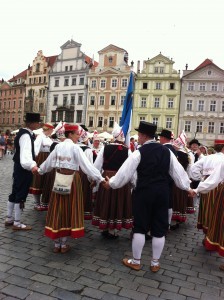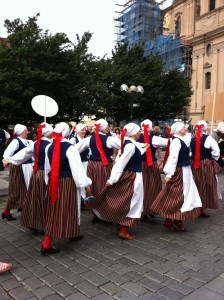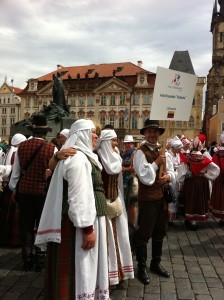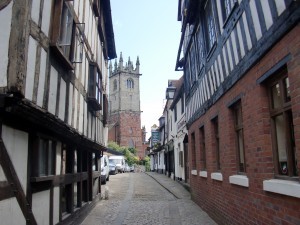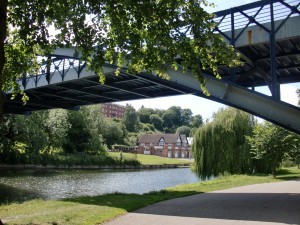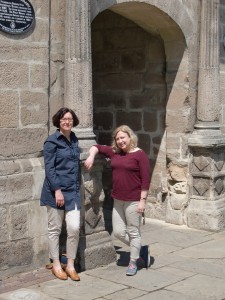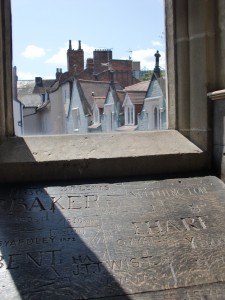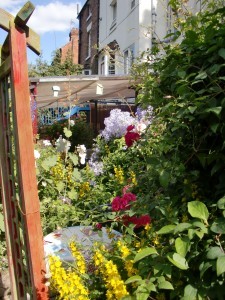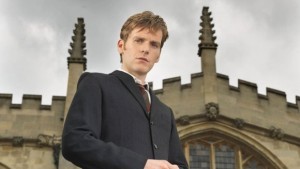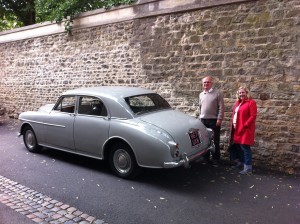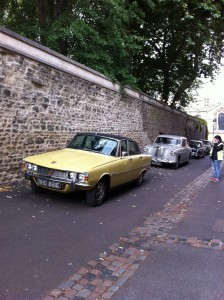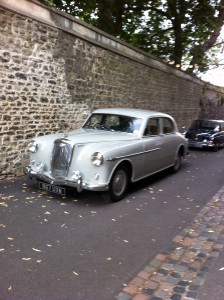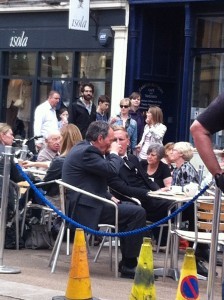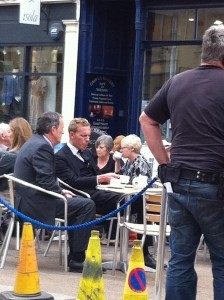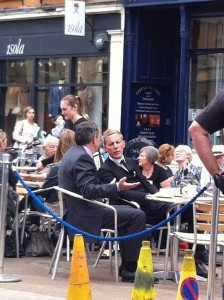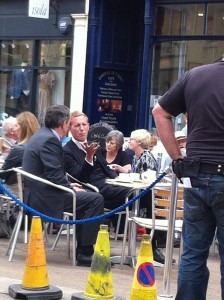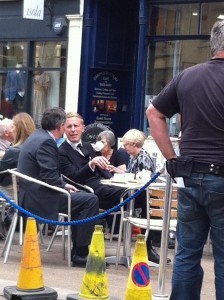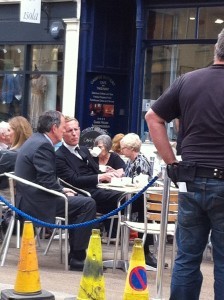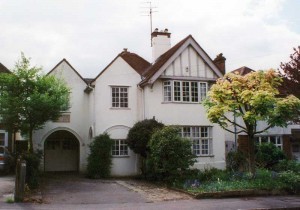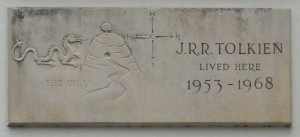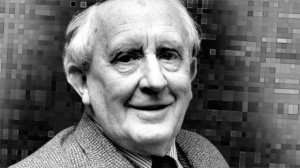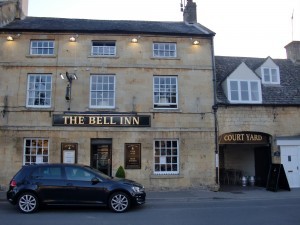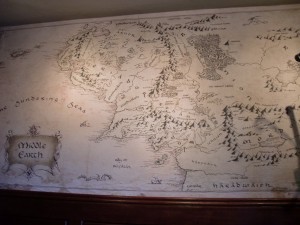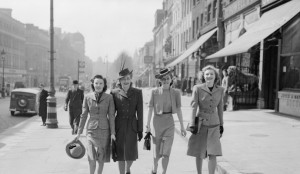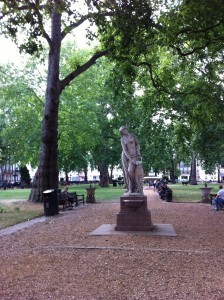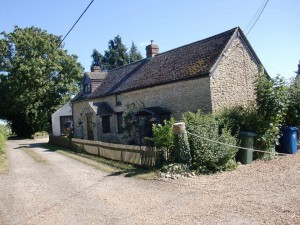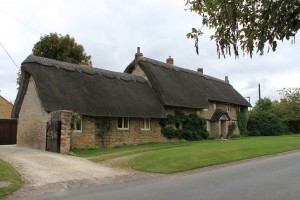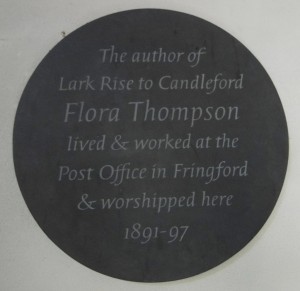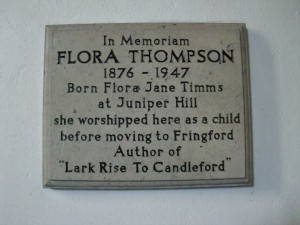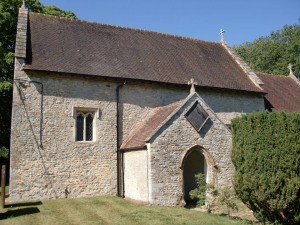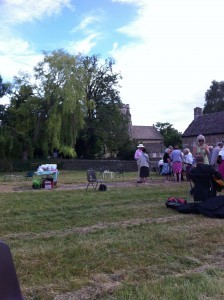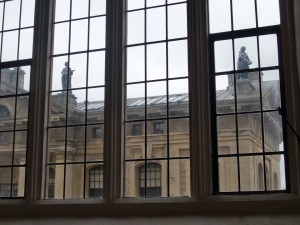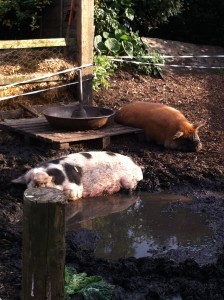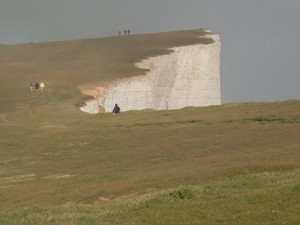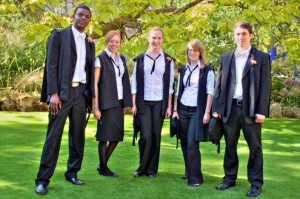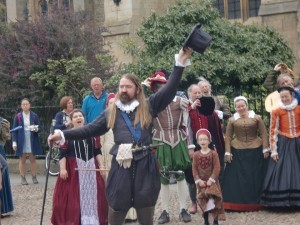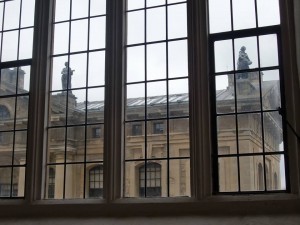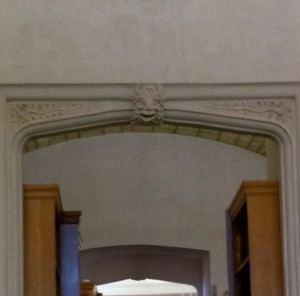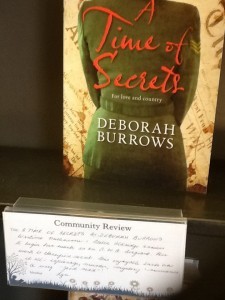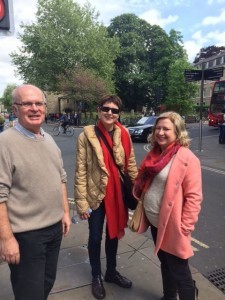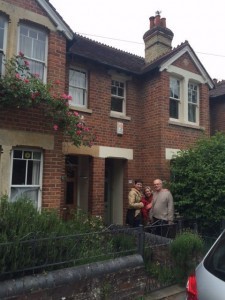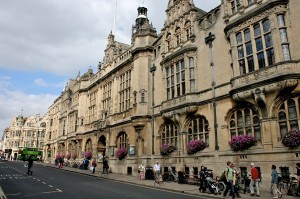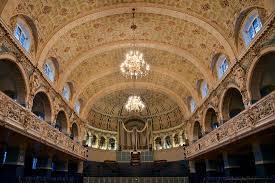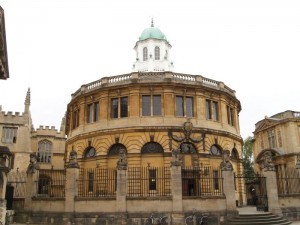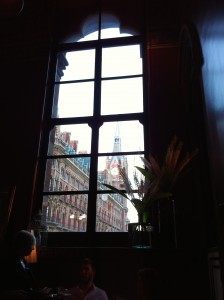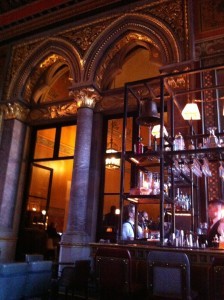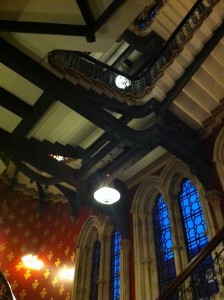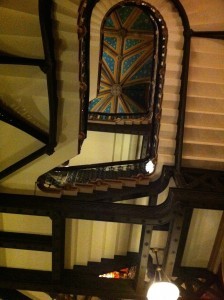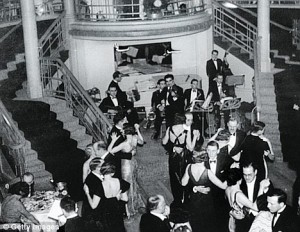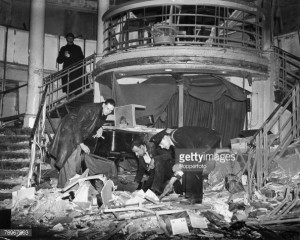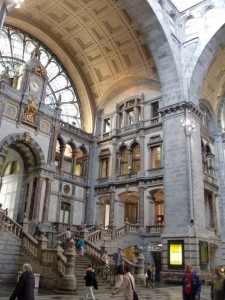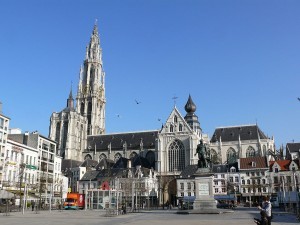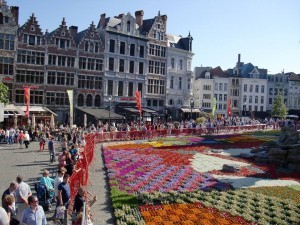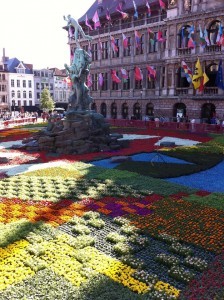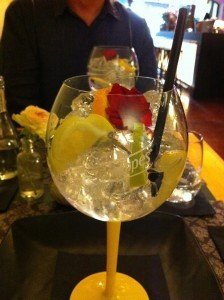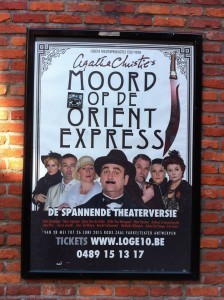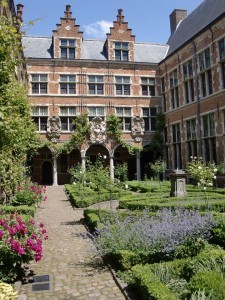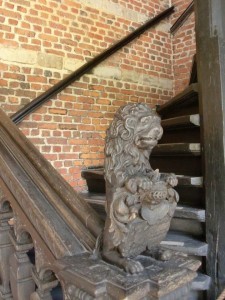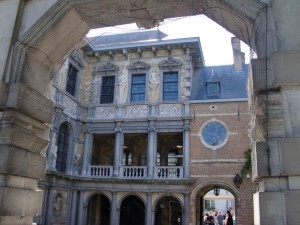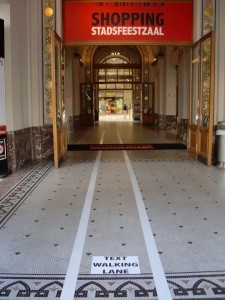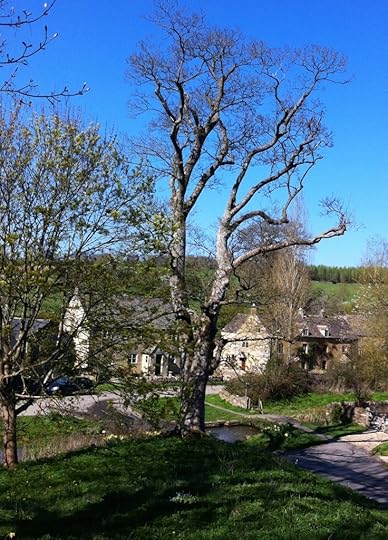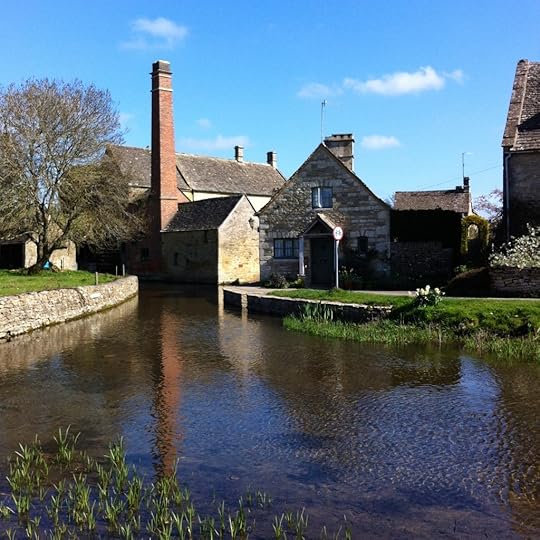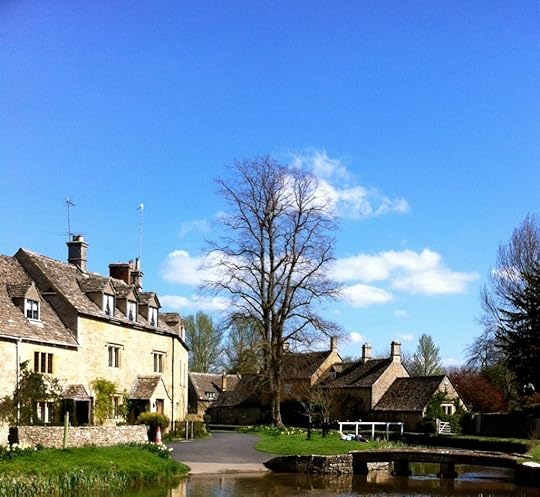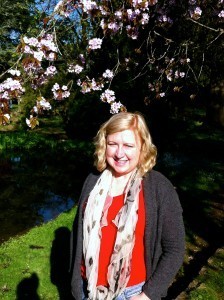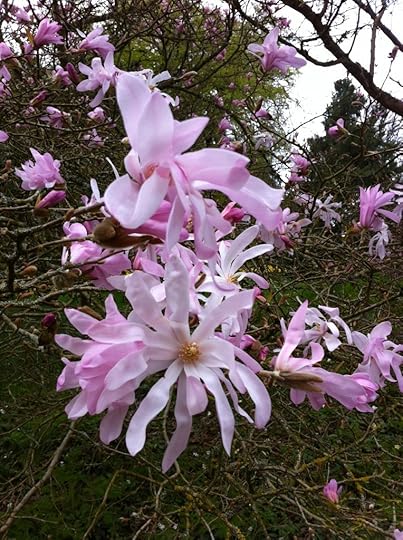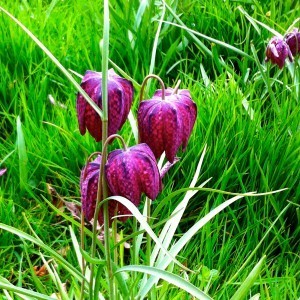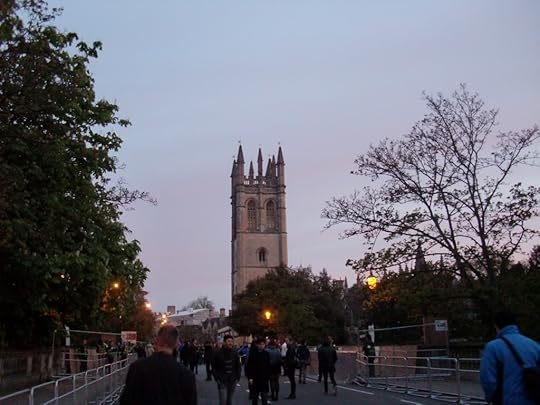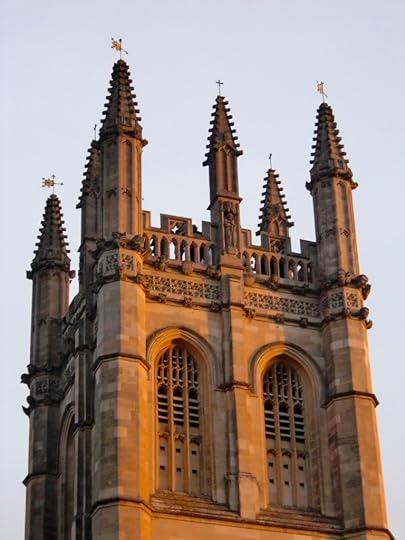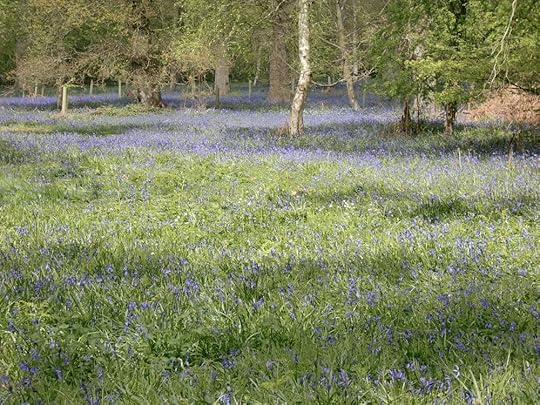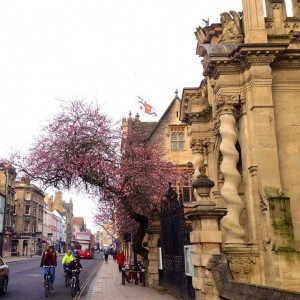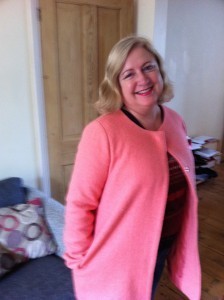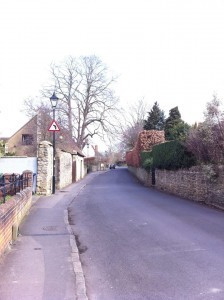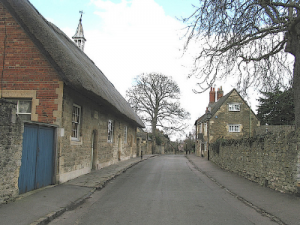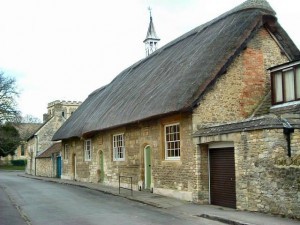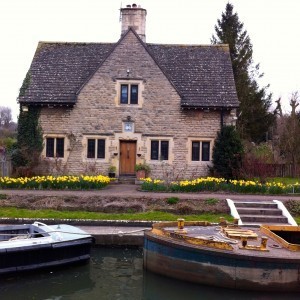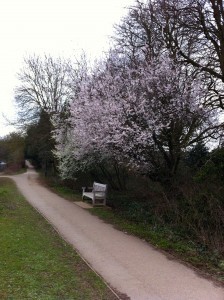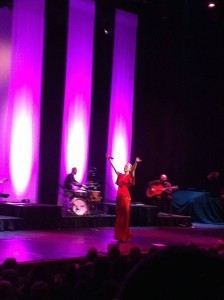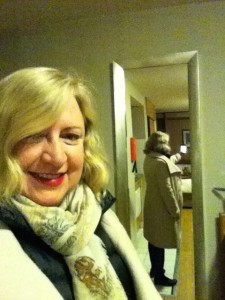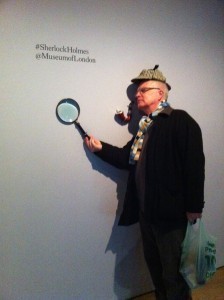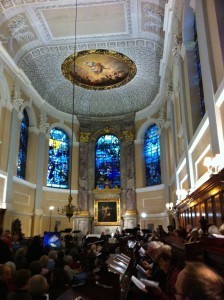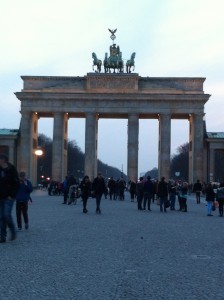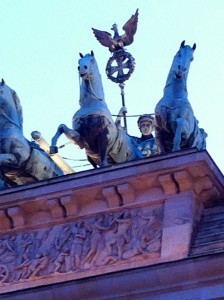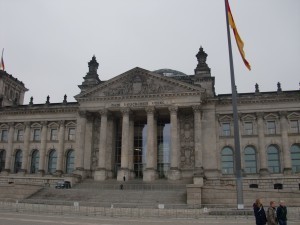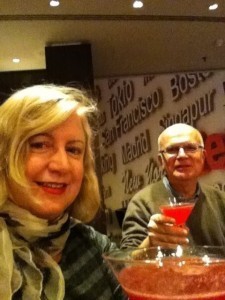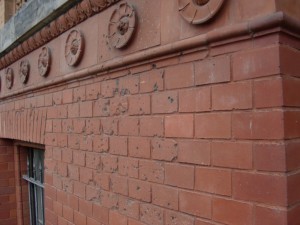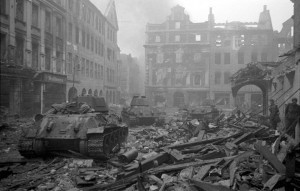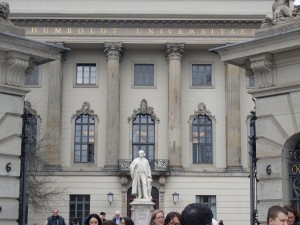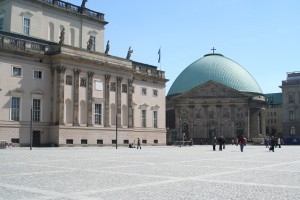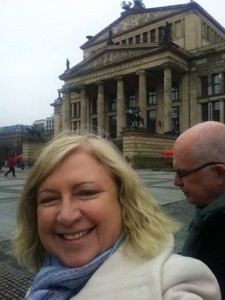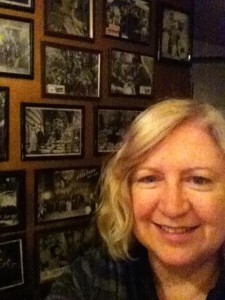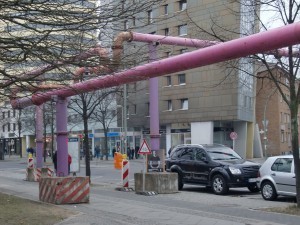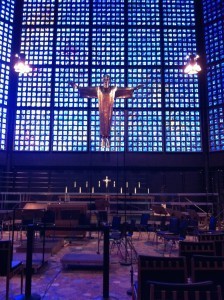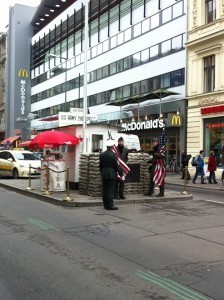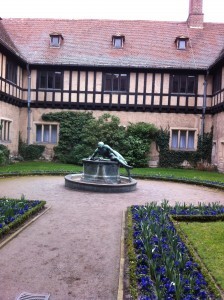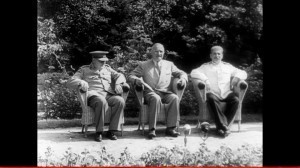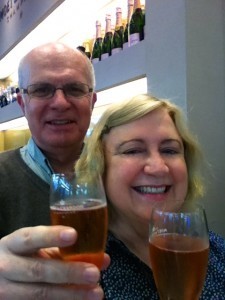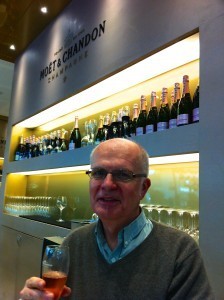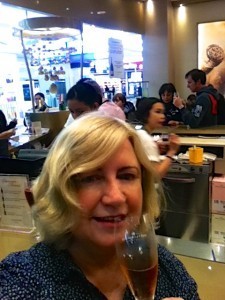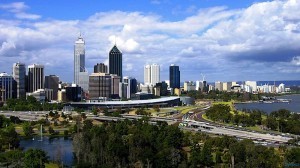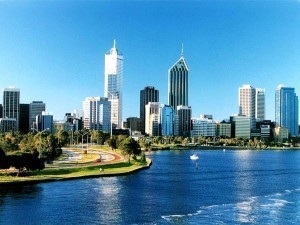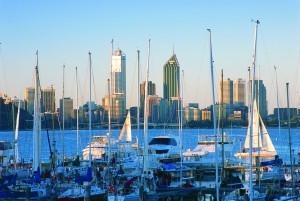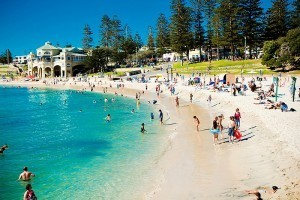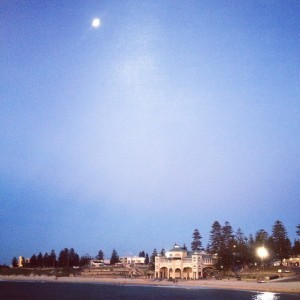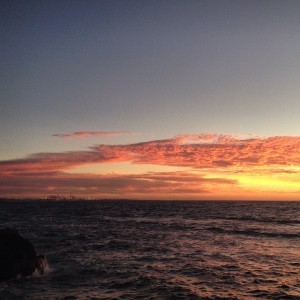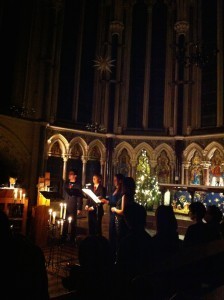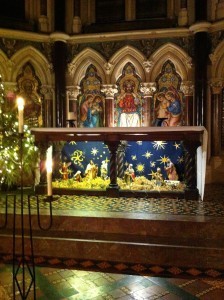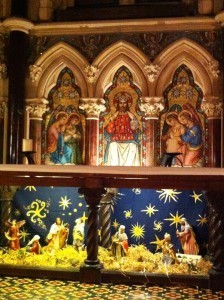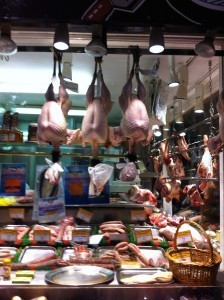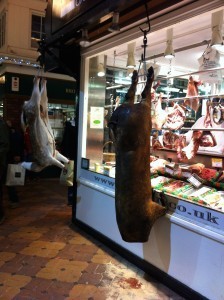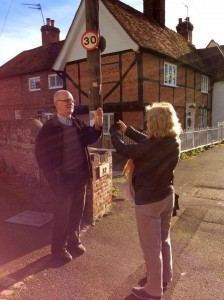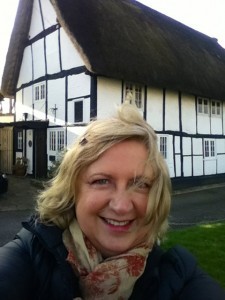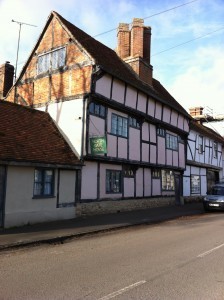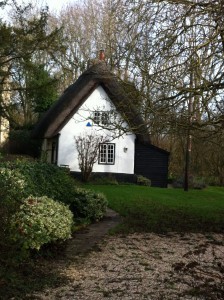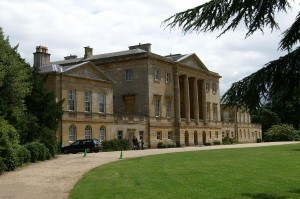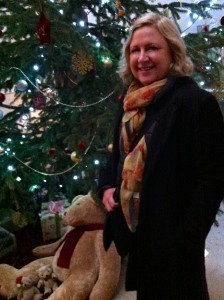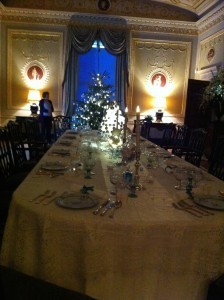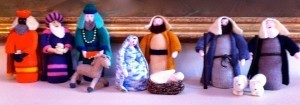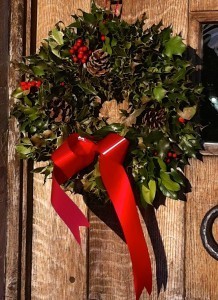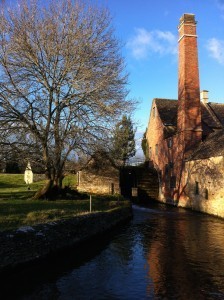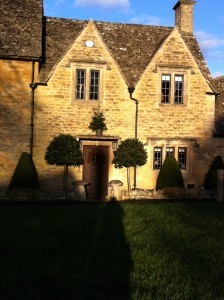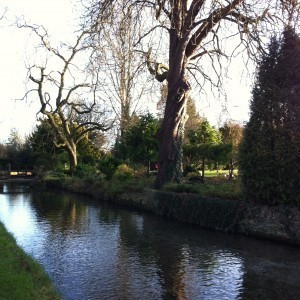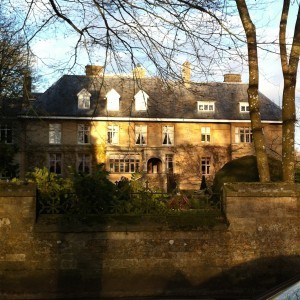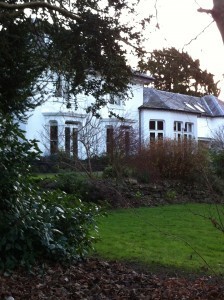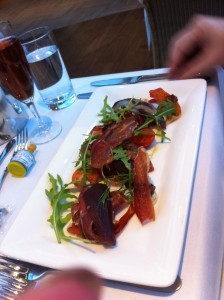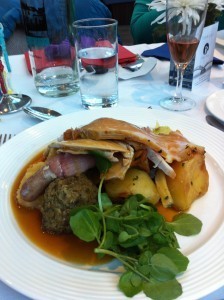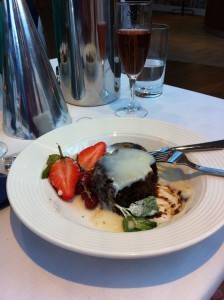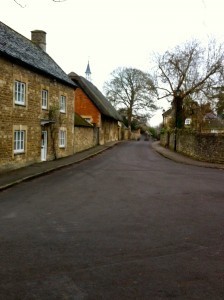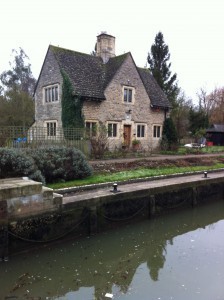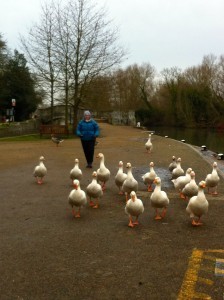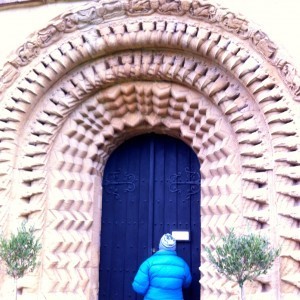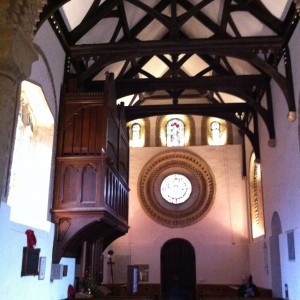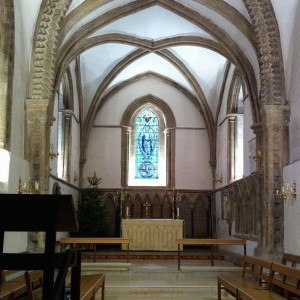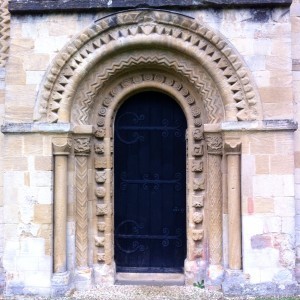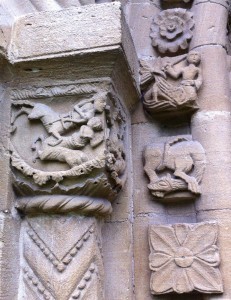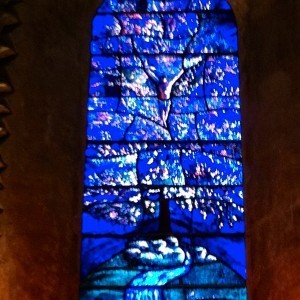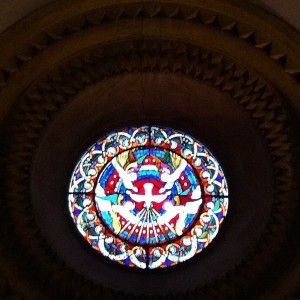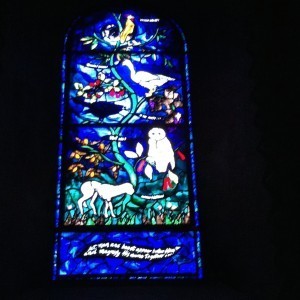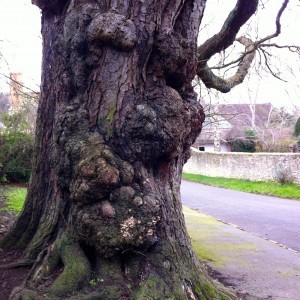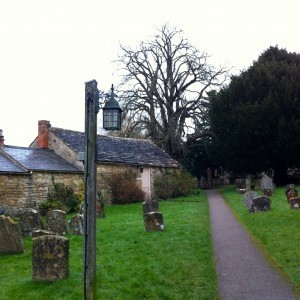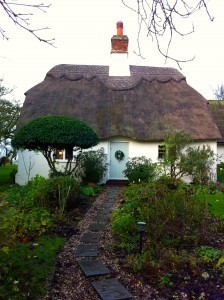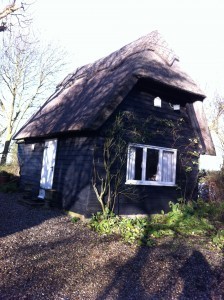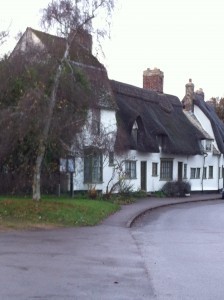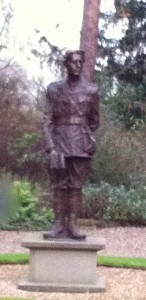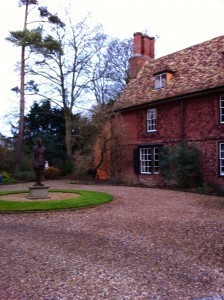Deborah Burrows's Blog, page 2
September 17, 2015
Autumn in Oxford
I’m at 65,000 words in my new book and in my mind I’ve just emerged from the nightly shelter of the Underground as the raiders roar overhead.
So I’m ready for a break. So I thought I’d take a write a new post.
Oxford is lovely at any time, and this video certainly captures some of the magic:
https://www.facebook.com/the.universi...
It’s full of surprises, too. We were wandering back from the library the other day down Brewer Street, towards St Aldates so we could walk home along the river, when we discovered the birthplace of one of my favourite authors, Dorothy L Sayers:
The new university year starts at the end of the month, so Oxford is being ‘Michaelmas cleaned’ in preparation. One of my favourite streets is Holywell Street:
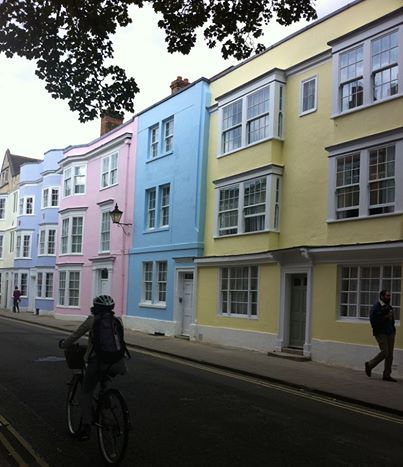
And here is Holywell Street in Oxford, freshly painted and pretty as a picture.
On 2 September Toby and I were good Iffley parishioners and headed off to the village church for census duty. St Mary’s is late 12th Century and one of the gems of Oxfordshire. But it needs essential work and the Church Council must be in a position to show how many people visit in order to get funding. So Toby and I volunteered to sit there for 3 1/2 hours and take down details of the visitors. It was a surprisingly enjoyable afternoon. We had seven visitors and I took the opportunity to point out to them my favourite bits, but there was also a lot of time to really examine the old church and get to know it well. I’ve put up photos before of the outside before, but here are some photos of the gorgeous interior.
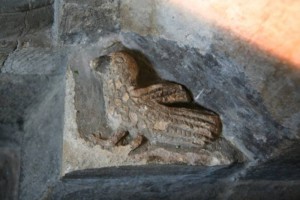
The sparrow is tucked away in a corner and needs to be searched for.
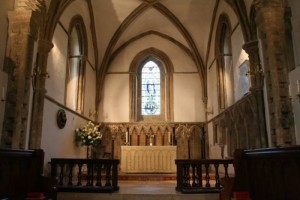
The tiles behind the altar are a shimmering gold and this photo does little justice to it.
On 4 September we took the chance to visit Downton Abbey (er, I mean, Highclere Castle). It was a really lovely stately home, and the Egyptian exhibition in the basement was an added bonus.
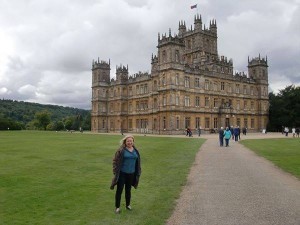
Here I’m imitating Lady Carnarvon
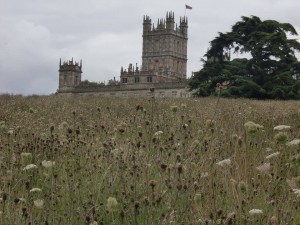
Toby braved the possibility of hay fever to take a photo of the Castle from its marvellous wildflower meadow.
On the way back we we saw this memorial window for John Betjeman in Faringdon church.
Last year Toby and I went to the Celebration of British Craftsmanship and Design in the Thirlestane Long Gallery, Cheltenham and Toby bought me a gorgeous wooden jewellery box. So this yearI had a special invitation to attend the opening. I had an invitation to the opening of the Celebration this year. We went early and had a look around Cheltenham Spa, including the nineteenth century Pump Room and the town centre. The Pump Room is where people ‘took the cure’ (the pump is still there and, believe me, the water tastes foul).
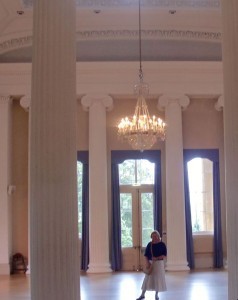
In the Pump Room
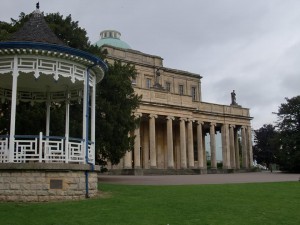
The Pump Room – the Prince Regent used to go there to ‘take the cure’
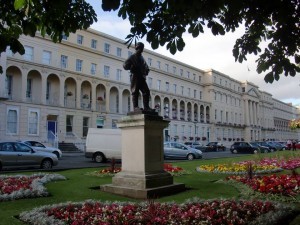
Cheltenham
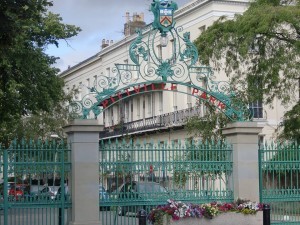
A very posh part of the town

As you may know, Toby’s EU grant is to consider the collection of Sir Thomas Phillipps, a 19C bibliophile. Phillipps’ former home, Thirlestane, is now part of Cheltenham College (a rather posh public school that opened in 1841) and it is where the ‘celebration’ was held.
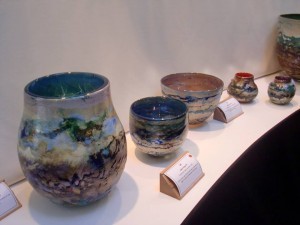
I fell in love with a glass pot, decorated with silver leaf, and had to buy it – it’s the second on the left in the picture.
Last week, we set out for a walk along the river and into the fields around the ancient town of Abingden. The route was about 3 1/2 miles, and we fitted it in from about 5.00pm until we emerged at Abingdon for dinner in an old pub. I particularly loved the walk along the ancient, now disused, road. I love how history sneaks up on you in England. Abingdon became the county town of Berkshire sometime after receiving its Royal Charter in 1556. Abingdon’s failure to engage fully with the railway revolution, by accepting only a branch line, sidelined the town in favour of Reading which became the County Town in 1869. In 1974 it became part of Oxfordshire after the counties were all changed. Now it’s a lovely, unspoiled town to visit – except for the appalling traffic congestion.

Here I am, imitating a wood sprite on an ancient road next to the A415.
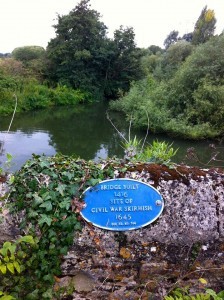
From a stone bridge over the River Ock
This is my latest acquisition – a very big book of reproductions of the bomb maps of London. Plus a magnifying glass with a LED light in it so I can see every street and every bombed building.
The book is reviewed by the Gurardian here:
http://www.theguardian.com/cities/gal...
As I trace my heroine’s journeys through the bombed city it’s as if I’ve fallen into London in the Blitz. I feel like the children in CS Lewis’ Voyage of the Dawn Treader, who fell headlong into the painting and ended up in Narnia…
Another acquisition is a watercolour of the peace garden in Christchurch. We walked home through there the other day:
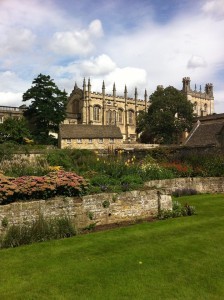
The actual peace garden
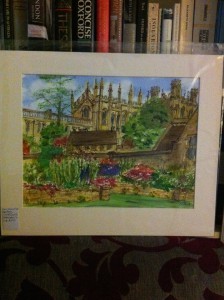
our picture
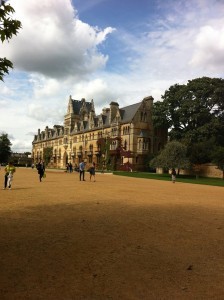
Christchurch from the meadow path
We also finally visited the Treacle Well in of ‘Alice in Wonderland’, which in reality is the holy well of St Margaret at St Margaret’s Church in Binsey. Alas, the water level was too low, so that even if we lay down and stretched out our hands to the (rather green and algaeish water) we couldn’t reach.
St Margaret’s Church at one time used to be a part of the Priory of St Fridewide. The story of the well is delightful:
Frideswide was a Saxon princess, the daughter of Didanus and his wife Safrida; she was born around 650AD. Frideswide took holy orders as a nun and made her vows of celibacy. Nonetheless, she was pursued by King Agar of Mercia. Frideswide rejected his unwanted advances and ran away, hiding herself in the woods. Agar did not take kindly to this, and brought an army to Oxford to claim her by means of force. But Agar was struck blind before he was able to catch her.
Frideswide heard about the blindness and took pity on Agar, praying fervently that his sight should be restored. She prayed especially to St Margaret of Antioch, who had lived during the time that the Romans were persecuting the Christians. LIke Frideswide, Margaret chose to flee rather than accept the advances of an unwelcome admirer. He denounced Margaret as a Christian and she was arrested, tried, found guilty and beheaded.
During one of her prayers to St Margaret, Frideswide heard a voice from the heavens telling her to strike the ground nearby with her staff. She followed the instructions and when she did so the earth opened up to reveal a small well. Frideswide took some of the water from the well, and when she bathed Agar’s eyes in the fluid, his sight was miraculously restored. To mark the miracle Frideswide established her priory next to the well and dedicated the chapel to St Margaret of Antioch.
To more secular pleasures: the St Giles Fair was held in Oxford last week. St Giles is a wide road in central Oxford, and it was blocked to traffic for the fair’s two-day duration. This resulted in traffic chaos, such as Toby and I waiting 45 minutes for the Number 3 bus to Iffley.
Since the 19th century, the fair has been held on the Monday and Tuesday following the first Sunday after St Giles’ Day (1 September), but it is of much earlier origins. It relates to St Giles Church, which was finished in 1120, but not consecrated until 1200. As part of the commemoration of the consecration, St Giles’ Fair was established and has continued for the last 815 years, nowadays as a funfair.
Queen Elizabeth I stayed in Oxford between 3–10 September 1567 and watched the fair from the windows of St John’s College on the east side of St Giles.
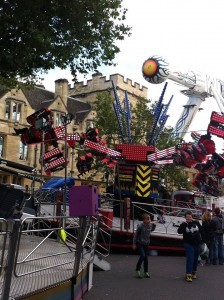
It looks as if some weird Dr Who monster is about to attack St Johns College…
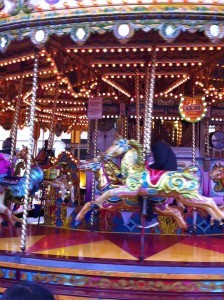
I love Merry-go-Rounds
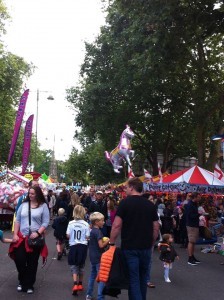
Unicorns fly at St Giles Fair
We try to take advantage of any sunshine to go for a walk. A couple of Saturdays ago it was a glorious sunny dayand we went walking in the countryside south of Oxford.
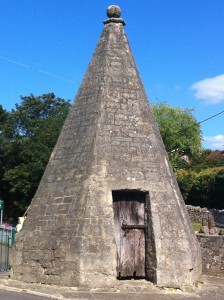
This is the ancient lock-up in Wheatley at the start of our walk.
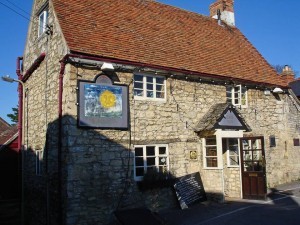
Afterwards, we had a well-earned drink in the Sun Inn.
And Toby likes to attend any Irish music concerts he can. We drove to Banbury to attend a wonderful concert by Cara Dillon and her husband Sam Lakeman at the Mill Art Centre. Afterwards, Toby had a photo with the pretty singer – no I am not jealous… And he bought every one of her cds.
This song was a highlight:
We even got onto the Mill’s Facebook page:
And in between all of that we flew to Philadelphia! Toby had a workshop to attend and we met up with old friends at the UPenn campus. The Pope is due to visit there soon, and we saw this tasteful exhibition of Papal souvenirs at the airport:
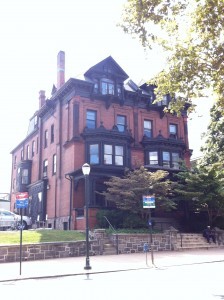
Philadelphia is where Addams, creator of the Addams Family hailed from – and Addams family-type houses abounded,
And, finally, last weekend was the Open Oxford – when many colleges and secret Oxford haunts were open for visitors. We looked over the archaelogical excavations at the site of the now demolished monstrosity that was the Westgate Car Park. In the 14th Century it was owned by the Greyfriars, who had a huge church and Monastery and college that attracted students from all over Europe.
We also climbed the cupola at the top of the Sheldonian, for wonderful views of the Dreaming Spires. The theatre was built from 1664 to 1669 after a design by Christopher Wren. I graduated there. In a tradition that goes back to the second half of the 12th century, students attending graduation wear full academic dress, including a mortar board and sub fusc. But perhaps the most unusual aspect is that the proceedings are still read entirely in Latin!
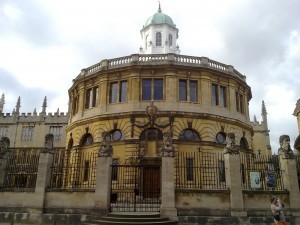
We climbed right up to the top and saw…
And we visited Exeter College (much beloved by TV shows such as Morse and Lewis) to see the Fellows Garden and its views of Radcliffe Square:
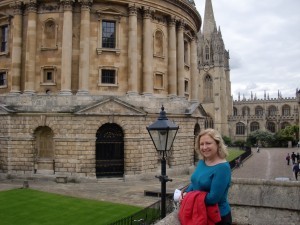
We’ve often seen Lewis and Hathaway discussing a case while standing here.
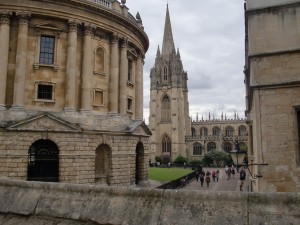
The Camera and St Mary’s from Essex Fellows’ Garden
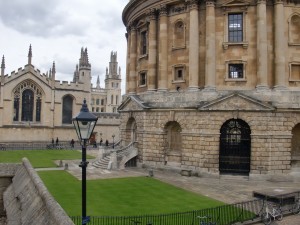
Another view from the Fellows’ Garden
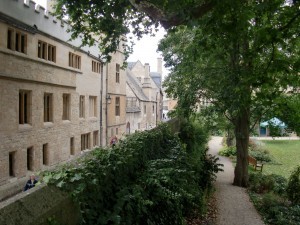
The Garden is raised above the level of Brasenose Lane
But the piece de resistance was visiting All Souls College, especially the Codrington Library and the Hall. From Wiki:
The library in its current form was endowed byChristopher Codrington (1668–1710), a Fellow of the college who amassed his fortune through plantation slavery. Codrington bequeathed books worth £6,000, in addition to £10,000 in currency (the equivalent of approximately £1.2 million in modern terms). The library, designed by Nicholas Hawksmoor, was completed in 1751 and has been in continuous use by scholars since then.
The modern collection comprises some 185,000 items, about a third of which were produced before 1800. The library’s collections are particularly strong in Law, European History, Ecclesiastical History, Military History, and Classics. There is an expanding collection devoted to sociological topics and the History of Science. Unusually for an Oxford college library, access to the Codrington is open to all members of the University (subject to registration). The library contains a significant collection of manuscripts and early printed books, and attracts scholars from around the world.
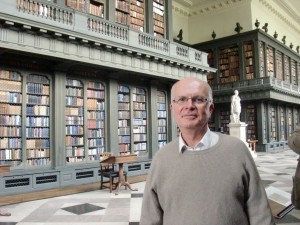
A librarian’s dream
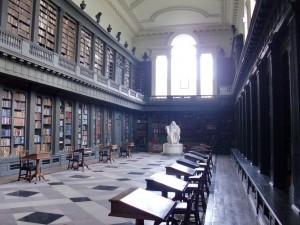
All Souls’ Codrington Library
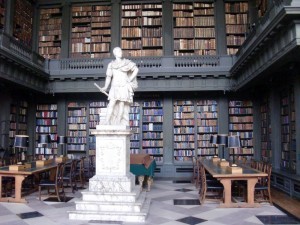
Boo hiss – slave owner buying salvation through endowment.
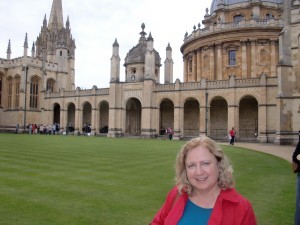
In All Sou’s Great Quad. I had a few tutorials at All Souls when I was up in 2000. I had to be escorted by a guard to the Professor’s room.
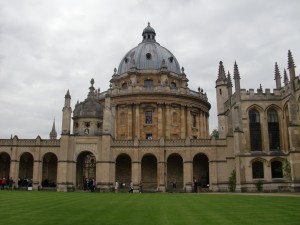
All Souls Great Quad
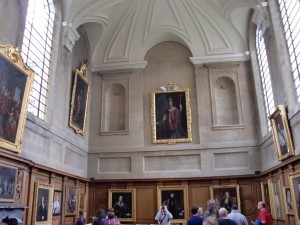
All Souls Hall
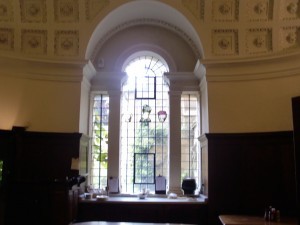
The Buttery
August 12, 2015
The joys of historical research, Prague and Lewis
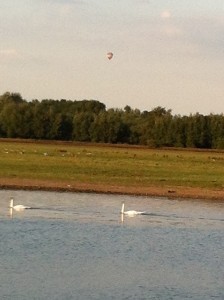
Port Meadow in the evening with balloon and swans…
You all must have assumed I was never to write another blog entry. No such luck! We’ve been really busy in the last few weeks and my blogging has taken second place to (1) a rushed but delightful trip home to Perth, (2) four days in Prague, (3) a day trip to lovely Shrewsbury, (4) a couple of days in London, (5) exploring Flora Thompson (Lark Rise to Candleford) territory in north Oxfordshire, (6) watching them film Lewis in the Broad, (7) enjoying Shakespeare in the beautiful Wadham College gardens, (8) spending days in the Lower Reading Room of the Bodleian Library researching WW2 London, and (9) desperately seeking summer….
We flew home to Perth for two weeks in June, arriving on a rainy winter’s day that was still warmer than summer in England. It was lovely to be back for a while, but rather discombobulating… But we saw my gorgeous great-niece and Toby’s gorgeous grandchildren (twice!!, what a treat!) and remembered how exhausting very young children can be. We were able to catch up with most of our family and with friends. My dear friend Carolyn even baked me a cake to commemorate my latest ‘baby':
Then home to Oxford and more winter. If you want to share our pain, this is an amusing set of holiday snaps – an English summer:
http://www.theguardian.com/uk-news/ga...
We were bemoaning the lack of heat and/or sunshine when we headed off to Prague, which was HOT, HOT, HOT. The day we chose to do a 2 1/2 hour walking tour of the old city was the hottest July day on record. Embarrassingly, we did not take hats or water with us and hopped from shade to shade as the history of that wonderful city was set out. I loved Prague. The centre is still largely unspoiled (it wasn’t bombed during either the First or Second World Wars) and the Russians seem to have left it as a showpiece.
When he worked as a clerk, Franz Kafka lived in an apartment in Dlouha, which happened to be across the road from our hotel. It was so noisy that each evening he’d walk across the river to Golden Lane near the castle to write in peace for four hours, walking back to his flat at midnight.
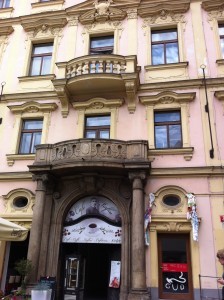
Kafka’s apartment block – not so noisy now.
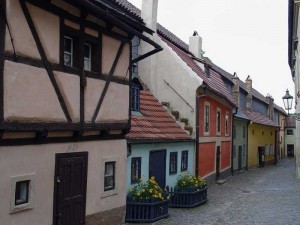
This is Golden Lane, near the Castle, where Franz wrote at night to escape the noise of his apartment in Dlouha
We loved the decorative Art Nouveau and Art Deco buildings in the old city.
While we were in Prague a major European folk dancing festival was being held and music and dancing and exotic costumes were to be found all over the town. You have to admire their fortitude, dancing in heavy costumes in real heat – up to 36C.
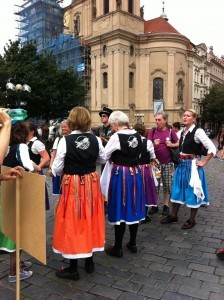
English Morris dancers
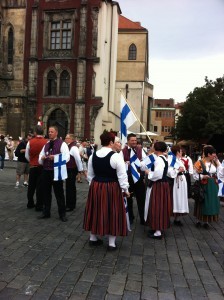
Ahh, Finland. Home of my father’s father’s father…
A few days after we arrived back we set off to see my friend Judith in Shrewsbury. I’d never been and I do love the Brother Cadfael mysteries. We had a lovely day, which included tea in a garden cafe by the river.
We have become fans of the new “Inspector Morse” spinoff, Endeavor, which is set in the 1960s and “centres on the early career of Endeavour Morse (Shaun Evans) after leaving Oxford University late in his third year without taking a degree, spending a short time in the Royal Corps of Signals as a cipher clerk, and then joining the Carshall-Newtown Police.” Of course, he’s seconded to Oxford, where he solves an especially troubling murder and stays forever. We’ve seen evidence of the filming, but alas, not Shaun Evans. Here’s a photo, to make up for it:
We did see various cars lined up in Brasenose Lane a few weeks ago, ready to be used in a scene. And we heard from our desk at the Bodleian the desperate attempts to start one an hour or so later. Apparently it wouldn’t start and the scene was filmed without it. Here we are in front of one of the more prestigious ones.
They also spend a lot of time filming Lewis in Oxford. We really like that show too (especially Inspector Hathaway – well, I do!). One afternoon they’d blocked off Magpie Lane and we asked bouncer-type what was being filmed. “Lewis,” he replied. “It’s always Lewis in Oxford”. Diplomatically, I didn’t mention Endeavour.
Last week we had the pleasure of seeing the show being filmed in an outdoor cafe in the Broad. Lewis and Hathaway were taking tea. Over and over and over again. Filming is a tedious business… It was exciting to watch for the first five or six takes and then we wandered off. But I got some good photos:
A twitter follower of mine pointed out that ‘the old guy’ to the left in this photo is Colin Dexter, who wrote the Morse series of novels.  I hadn’t realised.
I hadn’t realised.
Those photos got me (at last count) 998 views of my Facebook Page.
Last week we went on a little pilgrimage. This is the house JRR Tolkien lived in from 1953 to 1968, at 76 Sandfield Road, Headington. Unfortunately for him, he was living there when the Lord of the Rings was published and in the end the fans, desperate to catch a glimpse of him, forced him out. He moved to the slightly harder to get to Bournemouth where he lived until his death in 1973. We wanted to visit his grave, but it’s a bit tricky to get to. Another day.
And speaking of Tolkein, on our way back from Shrewsbury we had dinner in the Bell Inn, in beautiful Moreton-in-Marsh High Street. It’s a lovely little Cotswolds town that looks as if time had stood still. Yes, there were cars and people in modern clothes. But the stone buildings, the beautiful trees and well-kept houses all could have been from three centuries ago. The Bell Inn prides itself as being the pub Tolkien used as inspiration for The Prancing Pony pub in Lord of the Rings. They keep a map of Middle Earth on the wall to remind you. We had a very tasty risotto.
We visited London a couple of weeks ago, so Toby could visit the Imperial War Museum to see the exhibition Fashion on the Ration.
http://www.iwm.org.uk/exhibitions/iwm...
And we took the opportunity to wander around Mayfair (where some of the action in the new book takes place). Mayfair is another world. This is Berkley Square Gardens, where the nightingale sang in the old song.
One weekend we drove out to Flora Thompson country. Flora Thompson, who left school at thirteen and grew up in rural poverty, wrote the wonderful Larkrise to Candleford. When she was still a young girl, a gipsy woman repaid her for a small kindness by telling her fortune, reading her face rather than her hand. It was distinctly odd. There was no dark, handsome stranger, no long journey and no unexpected riches. “You will be loved by lots of people you will never meet, people all over,” said the old woman and waved her hand to indicate the world.
I adore those books. In Lark Rise, Over to Candleford and Candleford Green, Flora describes her childhood in the impoverished farming community of Juniper Hill in the remote corner where Oxfordshire, Northamptonshire and Buckinghamshire meet. They are set in the 1880s and early 1890s, although she did not begin them until 1938. All three books were brought together in 1945 as Lark Rise to Candleford.
And this is her cottage (now much extended and the thatched roof replaced with slate).
“Poverty’s no disgrace, but ’tis a great inconvenience” was a favourite saying that occurs frequently in the book. The families in Juniper Hill lived in terrible poverty. The men worked the fields for 10 shillings a week and the hamlet families survived on what they grew in cottage gardens and by keeping a pig and some hens. She wrote: “There were no bought pleasures for there was no money to pay for them, and never enough even for necessities, but people enjoyed good health, sang out of doors and were happier then.”
Sadly, modern farming practices have driven out the larks and no one who lives in the hamlet now works the enormous fields that surround it.
We also visited Fringford – the Candleford Green of the books and wandered around some lovely open gardens and had tea in one of them. It is a delightful, unspoilt village, with thatched houses set well back behind broad grass verges along the main street. The old post office Flora worked in is there and, although it is now a private house, Flora would recognise it immediately.
What else?Well, in late July we had strawberries and cream and wine and music on the Glebe field in our village – it was the summer party. We spoke to the Vicar and to fellow villagers – all rather posh because it’s a rather posh village. incidentally, the definition of glebe is: noun historical A piece of land serving as part of a clergyman’s benefice and providing income
And, finally, most of my time has been spent in the Bodleian library, happily researching the new book. I adore historical research and what a treat it is to be able to order literally any book I want, while being able to look up at any time to see this view.
At present, I have on my desk:
The Battle of Britain : five months that changed history, May-October 1940
The arts as a weapon of war : Britain and the shaping of the national morale in the Second World War
The Blitz : London then & now
We remember the Blitz
Café de Paris
The longest night
Whistling in the Dark: Memory and Culture in Wartime
The Blitz : Westminster at war
The longest night : voices from the London Blitz
TRIPLEX : secrets from the Cambridge spies
When I’m researching I’m as contented as these lovely creatures, who live at Jacob’s Inn in Wolvercote, where we went for dinner on Saturday night:
June 15, 2015
Antwerp and a rainy summer
It’s been over a month since I last updated my blog, and I’m annoyed that time seems to slip away so easily over here. We have been busy with work and travelling (and preparing to travel again) and so it goes. I keep waiting for summer to arrive, but it tiptoes in with sunny mornings and cloudy afternoons, or rainy mornings and light, fine evenings. Only one day so far has been sunshine and heat all day – and I walked back from Oxford without sunglasses or hat and ended up with a migraine that knocked me out the following day… The ironies of English weather.
For example, what’s wrong with this picture (apart from the fact that it’s a selfie?) It was taken on the FIRST DAY OF SUMMER and I am wearing the thick fisherman’s jumper I bought in Edinburgh last year to stave off the cold of an English winter.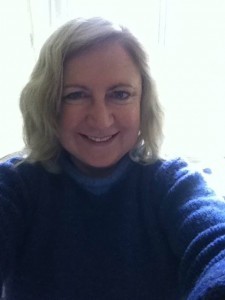
We’re heading home to Australia for a couple of weeks this Thursday. Toby has a conference in Sydney (I’m staying in Perth) and he is giving a talk at the University of WA on 24 June – if you are a Perthite, see if you can come along. It’s a great topic and he’s a wonderful speaker:
http://www.ias.uwa.edu.au/lectures/bu...
On 7 May the British held their general election. It is non-compulsory, and ‘first past the post’, which is all rather odd to us Aussies. As a citizen, Toby went up to the pretty thatched Iffly village hall and cast his vote. The result was a surprise, as everyone had been predicting a cliff-hanger, but the Tories got an increased majority. The map of England looked like this after the vote:
 If you squint at the map, if you look deep into that sea of blue Tory seats in the south of England, you’ll just make out a little red Labour dot to the north-west of London. That’s Oxford East, where we live.
If you squint at the map, if you look deep into that sea of blue Tory seats in the south of England, you’ll just make out a little red Labour dot to the north-west of London. That’s Oxford East, where we live.
We also went to East Sussex to visit Toby’s Uncle Robin for his birthday. At 89, he’s a few months younger than the Queen. On the way home we had a lovely dinner in a 16th C pub in Alfriston and visited Beachy Head, a sheer chalk cliff, 162 metres high – and no fence! Toby wouldn’t let me get too close to the edge…
I had a dental emergency a few days later, when I bit on an olive and broke a tooth. The Oxford dentist was very nice – we talked about cricket. Hah! I fooled him into thinking I knew something about it. I think he assumed because I was Australian I’d naturally be a cricket tragic.
Afterwards, Toby and I had a consoling coffee in the Organic Deli Cafe. It’s in an old, high, narrow house in the wonderfully named street, Friars Entry. The Stranglers song Golden Brown was playing and Toby said: “That’s one of my favourite songs of the eighties”. The pretty young thing at the cash register replied, “My granddad built the harpsichord they use in that song. It’s our family’s claim to fame.” It’s a great song. Enjoy the harpsichord…
A couple of days later we flew to Kalamazoo in Michigan, USA to attend the International Congress on Medieval Studies. We got to the hotel at 4.54am Oxford time, after travelling since 6.30am the previous day. Needless to say, I was a zombie by the time we arrived. Toby was booked to give a talk at the conference, but I also registered. After all, I DO have a Masters in Medieval and Renaissance Studies. The conference was at the Western Michigan University and was huge. More than 3,000 medievalists from all over the world, talking about any medieval topic you could think of. I went to the sessions on medicine, and fashion. Great stuff!!
Apparently many Scandinavians (particularly Swedes) settled in Michigan in the nineteenth century. And a few Burrows… While we were there Toby’s sister sent us a message that Kalamazoo was about 30 miles north from where another Burrows clan settled, in Three springs and Constantine. Toby’s 1st cousin 4 times removed, John Burrow died there in 1832. He was the son of William Burrow, brother of Jesse (Toby’s great, great grandfather?) who went out to Bethel in New York State and from there to the new frontier lands. I have distant American connections, as well as my cousins in California and New York. One of my Finnish great-grandfather’s brother’s ended up in Oregan.
There was great excitement in Oxford in late May when the Student Referendum on whether to continue to wear subfusc at examinations was a runaway victory for the traditionalists. The results showed 6,403 votes (75%) in favour of keeping subfusc compulsory, against 2,040 students (24%) who voted to make the clothing non-compulsory, with 103 abstentions. The additional vote on keeping gowns and mortarboards compulsory was similarly balanced, with 6,242 voting in favour of maintaining the tradition and 1,759 voting against.
This photo shows students in sub fusc. The boys wear white bow tie, white shirt and black dinner jacket and trousers, Girls wear black trousers or skirt and black stockings, white shirt and black ribbon. The gown that goes over the top of it all is a commoner’s gown, which is short and sleeveless. Girls can wear an odd sort of hat or mortar board, but most choose the mortar board, like the boys.
I know it’s archaic, but I enjoyed wearing sub fusc. You wear it for Matriculation, exams and at special College dinners. I also wore it to be examined by Viva (where I sat at a big table and had questions fired at me by four professors in full doctoral regalia to determine if I’d graduate with distinction.) I was allowed to remove my mortar board during the grilling and I played nervously with the tassel throughout. I love the tradition of it all. It’s traditional to wear a white carnation for the first exam, pink for the second and middle exams and red for the final exam and we’ve been seeing students with carnations of various shades running around Oxford for the past few weeks.
And speaking of archaic traditions – on May 23 I got off the number 3 bus, crossed the High and went down Catte Street into Radcliffe Square, where I was greeted by Tudor music and a cavalcade of people in Tudor wear. And there, under a banner, was Goriana herself – Good Queen Bess – Queen Elizabeth I.
Apparently it was Gloriana Day which is a re-enactment of Elizabeth’s 1566 visit to Oxford, with music, dancing, poetry, plays, parade. Toby took some photos:
I’ve been going into the Bodleian with Toby regularly to study for the new book, provisionally entitled Moonlit Death. It’s set in the London Blitz and I’m happy with how it’s going. I got a bit out of kilter for a while and couldn’t settle into the book, because the rather disappointing sales figures for Secrets made me question my future as a writer. Then I realised that what I enjoy is the process. I like to write. I like to write about history. And I like to ensure that what I write is historically accurate as well as entertaining. I’m a historian and I know how to research. I’m also an Oxford graduate (with distinction!) and so I can use the amazing resources of the Bodleian Library whenever I want.
So I got out of my slump and got back into research and writing. And in what wonderful surroundings! This is the view from my favourite desk in the Bodleian Lower Reading Room:
And I’m watched over by this charming little fellow as I work. He’s my good luck grotesque.
I’ve had some lovely reviews for A Time of Secrets.
http://www.austcrimefiction.org/revie...
http://bookgirl.beautyandlace.net/boo...
http://aussiereviews.com/2015/05/a-ti...
And the lovely Australian author, Jenn J McLeod sent me this photo of Secrets in Dymocks, NowraL
On 28 May we had a visit from Giselle and Tony, friends from Perth, and spent a lovely day showing off our Oxford to them. It was the start of Eights Week and after taking them into Trinity College and having lunch at the Ashmolean (now our favourite Oxford restaurant), we took them for a walk along the Thames Path to show them the rowing, and to the Isis pub for a drink.
And to our little house in Iffley.
The following day we went to the amazingly High Victorian Oxford Town Hall to see TINARIWEN, Master bluesmen of the Malian Sahara.
“Founding member Ibrahim Ag Alhabib, grew up in desolation in Mali, where he witnessed his own father’s death at the age of four. Later, after seeing a western film, he built his first guitar from a bicycle wire, a stick and a tin can. The band was founded in the 1980’s in Tuareg camps in Libya, where the nomadic peoples had relocated to find work and a new life away from their homeland of the Sahara. Disillusioned by the promises of Quaddafi at the time, the Tuareg became restless again and longed for home.
But the interaction with city life yielded unexpected consequences, they became exposed to western music – most notably the guitar-driven anthems of Jimi Hendrix and the American blues – which they mixed with their own soulful dirges which they’d perform in the camps by the fire with battery-operated amps. When revolution broke out back in Mali, they left Libya behind, hung up their guitars and picked up guns to fight for the Tuareg independence.
When the discord died down, the band returned to music, delivering songs imbued with aching beauty and lonesome poetry. Their music was bootlegged and traded around the region. Then in the late 1990s, they were discovered by western musicians and for the first time, their songs left the Sahara and were introduced to the world. For the next ten years, the nomads now travelled the world, performing at nearly every notable festival and venue around the globe, providing the world with a taste of the aching beauty and lonesome pleasures of Saharan Assouf.”
The Oxford Town Hall is a gorgeous building. It’s built in that very over the top late Victorian style. We’d never been in it before and spent the time before the concert gazing at the ceiling and people watching. There were Men with Hats in the audience: pork pie hat, embroidered fez (white guy), head scarf and a knitted woollen beanie. The women weren’t nearly as exciting, although there was a knitted beanie and a black bowler-type hat on a pretty young thing.
It was rather an unusual setting for the “Master bluesmen of the Malian Sahara”, but we thoroughly enjoyed the concert.
The day after that was something entirely different! We went to the Sheldonian Theatre, to see the Instruments of Time and Truth performing homage to Mozart:
Overture to The Marriage of Figaro/ Violin concerto no 5 in A major, Soloist Bojan Čičič/ Arias from Don Giovanni and The marriage of Figaro, with Katherine Watson and Christopher Purves/ Symphony no 41 the Jupiter. They were great!!
I love visiting the Sheldonian. It was designed by Christopher Wren and it’s where the Oxford graduation ceremonies take place. I was there way back in 2003, when I graduated with a MSc in Economic and Social History – History of Medicine. The ceremony is entirely in Latin, so I assume I graduated…
Last week we went to Antwerp in Belgium, so that Toby could give a paper at a conference there. The day before we stayed in the very luxurious St Pancras Hotel, which was a treat. We had a drink in the former booking hall, which is now a bar. Here is an arty shot of the hotel through the bar window. And one of the bar,
Here is the marvellous staircase – we were in the New Bit Out the Back, needless to say…
That evening we took the bus to Souhtbank, to the Nationa Film Theatre to see the movie, Timbuktu. It has been nominated for an Oscar for Foreign Film and I’m not surprises, as it was amazing – brilliant cinematography, acting and a story that was unbelievablely, heart wrenchingly sad. The characters haunted my dreams that night. It’s a ‘must see’ movie, but prepare to be devastated.
We also spent some time in Soho, so I could check out the Cafe de Paris. This is forming part of the new novel, so I wanted to walk the route from Piccadilly Underground Station to the nightclub and see the area around it. It is one of the most notorious blitz stories. During the war, the West End was full of live music. From streets darkened by the black-out, one could escape into a brightly lit world of crooners, cocktails and big bands. And the place the smart crowds were drawn to was Soho’s sumptuous, subterranean Café de Paris. It was where debs and celebs chose to go for a good night out. Here, apparently, ‘the men all seemed extraordinarily handsome and the young women so very beautiful’.
It was promoted as ‘the safest and gayest restaurant in town, 20ft below ground’. On 8 March, 1941, that boast was proved to be a deadly lie. The area between Piccadilly Circus and Leicester Square was being strafed with bombs. Inside the Café de Paris, West Indian-born band leader Ken Johnson – known as ‘Snakehips’ because of his silky dancing style – revved up his swing band into the opening bars of the Andrews Sisters’ hit, Oh, Johnny, Oh, Johnny, Oh!. Suddenly, there was an immense blue flash. Two bombs had hit the building, hurtled down a ventilation shaft from the roof and exploded right in front of the band.
It was fixed up after the war, and it is still an exclusive night club. We didn’t have time to go in, but I wonder about the ghosts…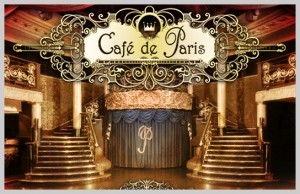
The next morning we embarked on what was the easiest journey to Europe that I’ve ever had. We checked out, wheeled out suitcases through the hotel lobby, turned left into a vestibule, opened a pair of glass doors and there we were in St Pancras Station. We took the glass lift to the platform, went through the luggage security check (ubiquitous nowadays, sigh!) and had our passports checked by British passport control. Next we crossed no man’s land and had our passports checked by French passport control (the man in the booth winked at me when he handed back the passport – ah, those Frenchmen!!!) Then we waited in the crowded departure lounge until called on to the train about 20 minutes later. It was a very short trip to Brussels – about 2 hours. The Chunnel was much shorter than I’d thought it would be, a small jouney into darkness and then we were in France. We changed at Brussels for the local train to Antwerp and were in our very nice hotel – Hyllit in a few minutes. That’s what I call travel!
It was a very short trip to Brussels – about 2 hours. The Chunnel was much shorter than I’d thought it would be, a small jouney into darkness and then we were in France. We changed at Brussels for the local train to Antwerp and were in our very nice hotel – the Hyllit – in a few minutes. That’s what I call travel!
We emerged into a railway station that was the most beautiful I’ve ever seen. The Antwerp Central Station was completed in 1905 and has two monumental neo-baroque façades, a 60 metre metal and glass dome and a gilt and marble interior.
We liked Antwerp very much (it certainly helped that our first two days there were ones of sunshine and warmth).
On the Sunday I accompanied Toby to mass in the Onze-Lieve-Vrouwekathedraal(Cathedral of our Lady), which was begun in the 14th century and finished in 1518. The church has four works by Antwerp’s golden boy, Pieter Paul Rubens. It is the highest cathedral in the Low Countries and remains the tallest building in the city. We loved that about Antwerp – it has resisted the modern tendency to build higher.
We wandered around the old city that afternoon, admiring the buildings and the floral exhibition outside the city hall, in the Grote Markt (Main Square).
We had dinner in a wonderful vegetarian restaurant, which served ‘more than 90 types of gin’. So we had to indulge in gin cocktails. We chose a local gin, with citrus and honeysuckle elements…
We saw this poster on a wall – it amused me:
The following day we did the tourist trail, visiting the Print Museum – incredible – and Ruben’s House – also marvellous. The Plantin-Moretus Museum of print is UNESCO Heritage Listed. As the blurb says:
“The Museum Plantin-Moretus is unique. It is just as if after 440 years the working day is about to begin for the type founders, compositors, printers and proofreaders in the world-famous printing works. The oldest printing presses in the world are there, intact and ready to roll. The offices and shop echo with conversations between Christoffel Plantijn and aristocratic and scholarly clients from all over the world.
Feast your eyes on the home of the Plantin and Moretus families! Stroll through the drawing rooms, soaking up the atmosphere of life in Antwerp in the sixteenth and seventeenth centuries and admiring the impressive art collection which includes portraits by Peter Paul Rubens.
Continue on your way through the rarefied libraries lined with the breathtaking 30,000 old editions that make up the Moretusses’ collection. Marvel at the magnificent manuscripts and some of the finest examples of European typography.”
We spent hours in there. Here is the renaissance garden:
And this is a lion we made friends with on the stairs:
The Ruben Huis was also fascinating.
And this is some fun from a shopping centre that was as decorative as the Station:
And that’s why it’s so hard to keep up the blog – too much to do!!
We’ll hopefully see as many of you as possible in the next few weeks. I can’t say I’m looking forward to a Perth winter, but I believe the weather has been glorious, so maybe it’ll be warmer than an English summer!! But it won’t be light until 10.00pm. I got up at 5.00am the other morning and it was bright light outside – remember we’re on daylight saving, so it was really 4.00am!! I do love the summer light here.
Deb
May 3, 2015
Happy Birthday to ME!

April is over and has given way to the showers and sunshine of May. The trees are showing their bright spring raiment, the birds never seem to cease their singing and the cherry blossom and magnolias are giving way to apple blossom, the daffodils to bluebells. Easter and the 100th anniversary of Anzac Day have been and gone, and we have a brand new baby princess.
Toby and I have been amazed by the beauty of the English spring. The blossom trees, in particular, have been so beautiful. Trees that for the rest of the year are insignificant suddenly explode into glory all over Oxford and the countryside, wearing white (or pink) for Eastertide, as Houseman said in his wonderful poem. There’s a wonderful example in the Oxford High Street, just at the entrance to St Mary’s.
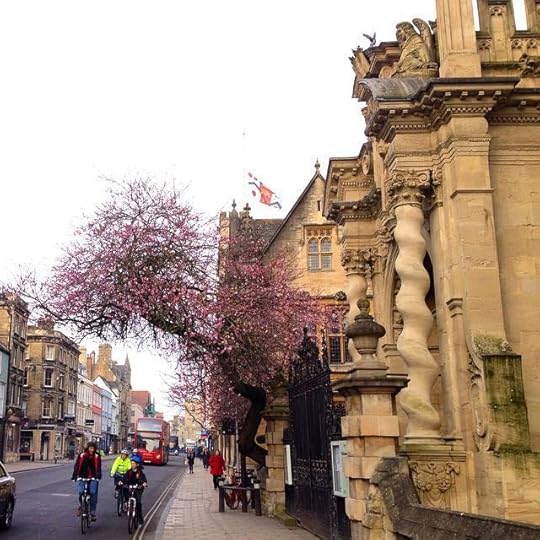
And here is a magnolia outside Hertsford College
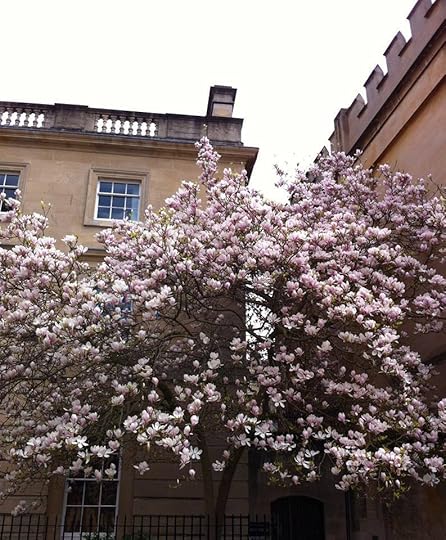
We had some glorious spring days here in Iffley. This is the magnolia at the end of our terrace, and some flowers, almost iridescently pink, on a fence nearby.


Unfortunately, I was ill in bed all Easter with a virus that, luckily, did not cause asthma. So I spent the time re-watching the BBC Pride and Prejudice and some of the Australian drama, Seachange, on my laptop. It’s amazing how much better one feels after a long session of Mr Darcy.
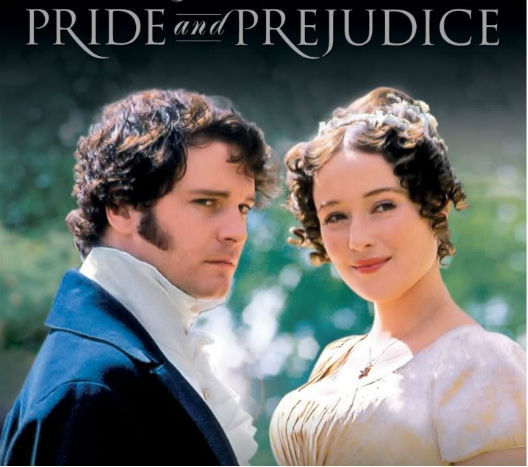
I was sent photos of my novel in the bookshop at Sydney Airport and in a bookshop in Busselton, which also cheered me enormously.

In April Toby and I began to go into Oxford in the afternoon to work in separate reading rooms in the Bodleian Library. I’ve got access to all the libraries because I’m an Oxford graduate, and Toby has access as a researcher. The New Bod has just opened after a major renovation and I’ve been writing my novel in the top floor reading room, which is bright and very new:
http://www.independent.co.uk/arts-ent...
The weekend before my birthday was the first of my birthday surprises, a trip to London. We stayed in Bloomsbury, in a 200 year old Georgian townhouse, now a B&B, which used to be the home of the painter Sir John Everett Millais. Our room was at the very top of the house – yes, one of those little windows above the parapet!!
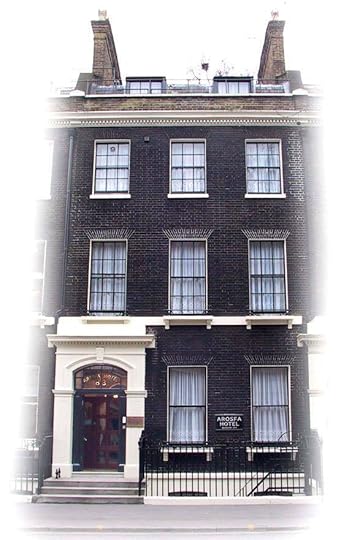
From our window, we saw the former Dillon’s bookshop (now a Waterstones) but still a mish-mash of rooms, and more books than you could imagine…
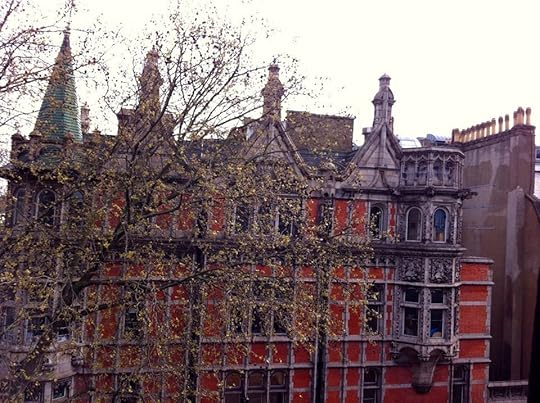
On the Monday, we took the number 24 bus to Westminster. Route 24 runs between Pimlico and Hampstead Heath. It dates back to 1910, when it ran between Hampstead Heath and Victoria station. In August 1912 it was extended to Pimlico and has continued in that form until the present day, making this the oldest unchanged bus route in London.
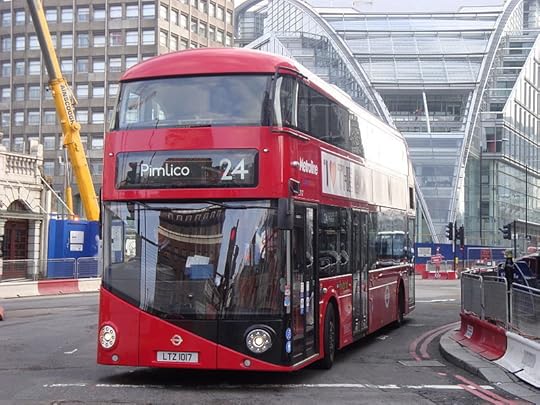
I’d asked Toby if we could do touristy things I’d never done before, and because it was my birthday treat, he agreed. First, we saw the Changing of the Guard in the Horseguards Parade. I’ve included a selfie to prove I was there!


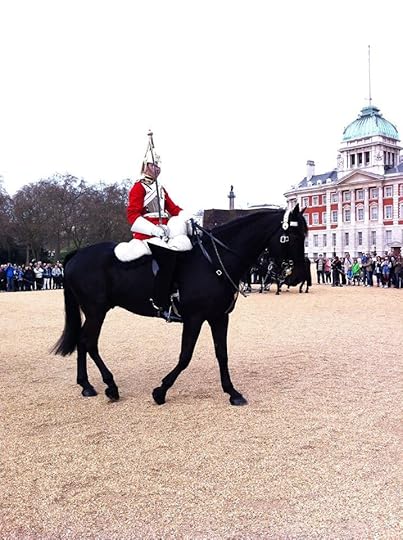
Then we had a tour of the Banqueting House:
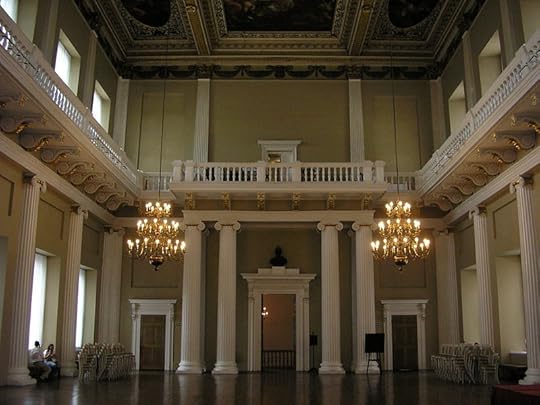
before lunch in the cafe at the rather splendid Methodist Central Hall
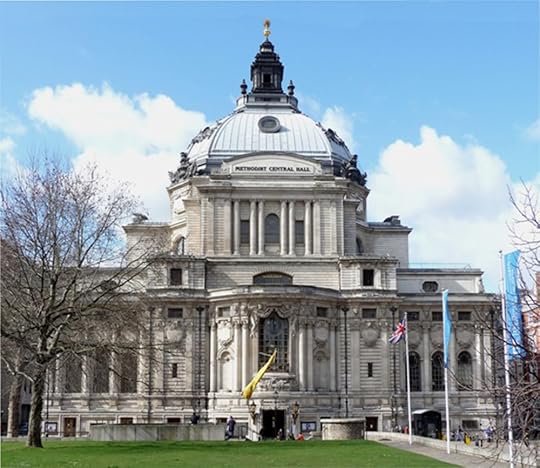
The afternoon treat was a tour of the Houses of Parliament, and because the government is in recess until the election next week, we were able to see all over. It was absolutely fascinating. Many of the buildings were reconstructed in 1870, after a fire destroyed much of the complex in 1834. The House of Commons Chamber was rebuilt again in 1950, after it was destroyed in the Blitz during the Second World War. We had a particularly good guide, and I was enthralled by his stories.
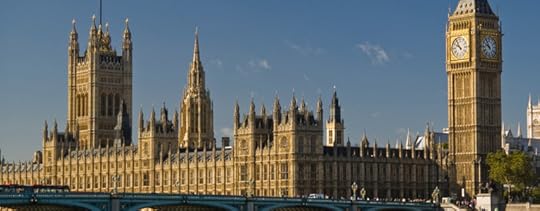
In the evening, we went to the South Bank to eat burritos at the Mexican Street Kitchen (a favourite of ours) and see the new Tom Stoppard play – The Hard Problem, which I adored.
http://www.nationaltheatre.org.uk/sho...
On Friday 17 April we caught up with friends for lunch in the cafe at the top of the Ashmolean Museum and had a wonderful time with Kate, John, Rosemary, Jill and Jock. I’ve known them since we were all on a fabulous walking trip in Italy in (we think) 1997.
Sunday 19 April was my birthday, and the day before Toby drove me to a super secret location, namely the beautiful village of Lower Slaughter in the Cotswolds for a birthday weekend.
On the way we stopped in at Bladon to see Winston Churchill’s grave:
We stayed at the Slaughter Country Inn, which was luxurious and charming.
That afternoon we enjoyed the sunshine and spring flowers on a walk beside the River Eye and across the fields to Upper Slaughter:
The village of Lower Slaughter is built on both banks of the River Eye, which also flows through Upper Slaughter. At the west end of the village there is a 19th-century water mill.
There is a ford where the river widens in the village and several small stone footbridges join the two sides of the community. Most of the 16th and 17th century homes in the village use Cotswold sandstone.
That evening we had dinner in a little restaurant in Stow-on-the-Wold, and came back to our suite as twilight fell into a chilly night.
The following day was my birthday. We walked to Bourton-on-the-Water and had lunch there, fighting the tourists:
before we returned to Lower Slaughter for a delicious dinner in the Inn’s restaurant. I had a lovely birthday.
On the way home we stopped at Batsford Aboretum, which has many flowering cherry trees. Like Houseman, I felt that there were too few springs left to me not to take every opportunity to see the cherry tree in bloom:
Loveliest of trees, the cherry now
Is hung with bloom along the bough,
And stands about the woodland ride
Wearing white for Eastertide.
Now, of my threescore years and ten,
Twenty will not come again,
And take from seventy springs a score,
It only leaves me fifty more.
And since to look at things in bloom
Fifty springs are little room,
About the woodlands I will go
To see the cherry hung with snow.


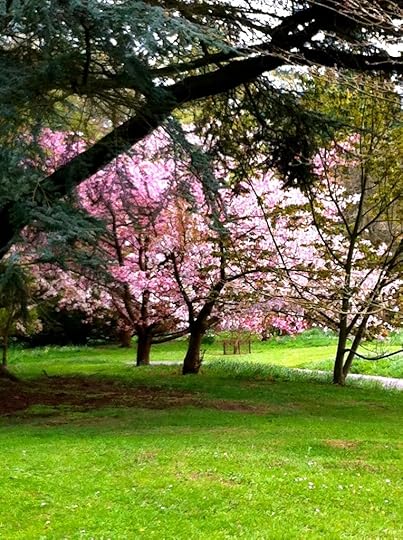


Batsford Park was the former home of Lord Redesdale, father of the infamous Mitford sisters who lived there during World War I. The house’s former grounds, which give stunning views of the Evenlode Valley, are now one of the finest botanical collections in the country. Much of the landscaping in the arboretum is thanks to Algernon Bertram Freeman-Mitford (Bertie) – later the 1st Lord Redesdale and grandfather to the Mitford girls.
We managed to catch the last of the magnolias in full bloom:
And we finally got to see a field of the rare and delicately exotic-looking fritillaries (an English wildflower):
As we’d seen Winston Churchill’s grave on our way to Lower Slaughter, on the way back to Oxford we went to Blenheim Palace, his place of birth, and did a tour of the state rooms:

This year it was the 100th anniversary of Anzac Day. We attended the special Church Service at St Mary’s on the High Street. One of my birthday presents from Toby was this gorgeous lead-light plaque of a poppy, which we bought from the maker in the Lower Slaughter Village Hall. She was Japanese, and she used traditional Tiffany methods.

We got up very early on Friday morning to walk to Magdalen Bridge to take part in the May Day ceremony. It was very crowded, but everyone was good-natured and the sun shone on Magdalen Tower just as the choristers competed with the birds to celebrate the spring.
Finally, to finish this rather floral-centric entry with more flowers, Toby and I went to Nuneham-Courteney Arboretum this week because I wanted to see a bluebell wood. It was glorious:
April 2, 2015
First we take Iffley, then we take Berlin…
We’re back in Iffley, after a few wonderful days in Berlin.
But first to my book. I’m so happy about this lovely review in the Sydney Morning Herald:
http://www.smh.com.au/entertainment/b...
And also this review in the West Australian:
And a reader sent me this delightful picture of her cat, Miles, who’s just finished chapter 27, apparently:
It’s spring, and the weather is entirely unpredictable. Dickens put it well in Great Expectations: “It was one of those March days when the sun shines hot and the wind blows cold: when it is summer in the light, and winter in the shade.”
The mornings have been sunny, but then it clouds over and becomes very chilly indeed. In honour of the season, in these photos Oxford and I both have our spring coats on:
I put on my pink spring coat (bought in Hampstead in November) the other day to visit the Iffley Village shop and Post Office, which is run by a group of volunteers who feel that a village without a shop is without a heart. They’re always delightful to talk to. Iffley is still very much a village, although it’s now surrounded by a council estate and Oxford suburbs. Luckily there is no road through it, so you have to be going to Iffley to enter Iffley Turn and then Church Way. This is Church Way from the shop looking towards our house (which isn’t visible)
Here is the medieval Church Hall, also in Church Way.
It’s a pretty time of year. The thatched cottage at the end of Church Way is being re-thatched, but you’d never know it, as it’s hidden behind the blossom.
The old Lock House is a picture with bright daffodils, and the trees are pink and white on the bank opposite to it.
We went to London for a long weekend on 14 March, to enjoy the capital and go to a concert – Mariza – in the Barbican. Mariza is the queen of Fado, a Portuguese word meaning “fate”. The songs are beautiful and heartfelt and it was a terrific concert. Here’s a photo of the lady herself in full flight.
And here’s a photo of me in my sophisticated London coat in our hotel. Just the thing for chilly springs in the metropolis to wear to galleries and concerts.
We went to the Museum of London, to trace the history of that fascinating city. One of the exhibits was on Sherlock Holmes. Here’s Toby doing his impersonation:
And then it was back home to attend a concert in Oxford. Over the past three Tuesdays we’ve gone to that most beautifully baroque of colleges, The Queen’s College, for a series of Lenten concerts.
The music was by Arvo Paart and John Tavener and they were set in this superb chapel.
And for something entirely different, last week we went to Berlin.
We arrived in the late afternoon on 25 March and walked down the Unter den Linden to the Brandenburg Gate, saw the Reichstag and then had cocktails in the Hotel bar (excuse the selfie!).
We were staying at a hotel in the former East Berlin, where it seems that everywhere you look, lovely old buildings are pockmarked with bullet holes.
“They fought the Russians street by street here,” said Toby, “as the Red Army headed for the Reichstag.”
I shivered, and imagined the horror.
Toby’s conference was at the lovely Humboldt University, on the really spectacular main street of Berlin, the Unter den Linden. We ended up walking the entire length of this lovely thoroughfare. Across the road from the University is the Bebel Platz, where the infamous Nazi book burning took place.
We ate a couple of times in a little cafe, Leon, which had as its theme, German movies of the 1930s.
And we were rather perplexed by the large pipes that ran throughout the centre of the city, some pink, some blue.
On Saturday afternoon we wandered through the former West Berlin. This Berlin Church was damaged in WW2 and has not been repaired, as a symbol of the destruction of war.

They built a new chapel next to it in 1960, which from the outside is a pretty ordinary building.
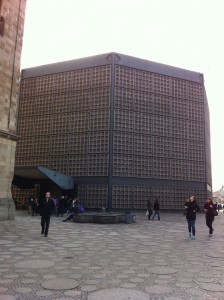
But once you enter … the photo doesn’t do justice to the feeling of utter bliss at being surrounded by shimmering blue. It is utterly sublime.
We also went to the Checkpoint Charlie museum, which was absolutely fascinating, as was what remains of the Wall.
On Sunday we visited Potsdam. Unfortunately it was raining, so our sightseeing was limited. The English country house is actually Cecilienhof palace (built during WW1), where the Potsdam Agreement was signed in 1945 for the military occupation and reconstruction of Germany. We saw where Churchill and Truman and Stalin sat and their offices in the palace. When Toby said, “That’s the door that Stalin used to enter the room, I got goosebumps, almost as if his ghost walked through me.” Ugh, he was a terrifying man.
And now we’re home!! Toby has a bad cold and I’ve an odd virus causing bad headaches and fatigue. We’re staying put for a while now – although it’s my birthday in a couple of weeks and Toby’s booked us to go to a secret concert in London next Friday and then to a “secret birthday destination” for Sat 18 and Sun 19 April. I’ll let you know where we end up going….
March 10, 2015
Book Launch and home from the holidays
The book launch for A Time of Secrets on 24 February went very well, although it was a stinkingly hot evening – the maximum that day had been 39C! But there was yummy food and good wine and company, a lovely speech from Rosemary Sayer and a short one from me. And so my third literary endeavour was launched. Fly, baby, fly.
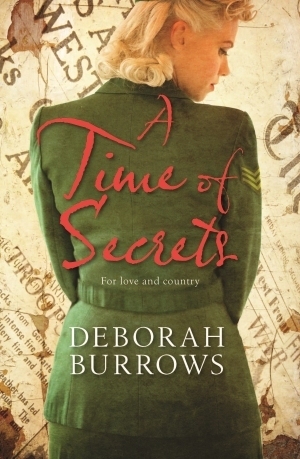
Here I am with Rosemary, enjoying the relative coolness of the verandah while waiting anxiously for the guests to arrive and fortifying myself with a glass of champagne…

And me in full flight, thanking everyone and setting my latest baby free.
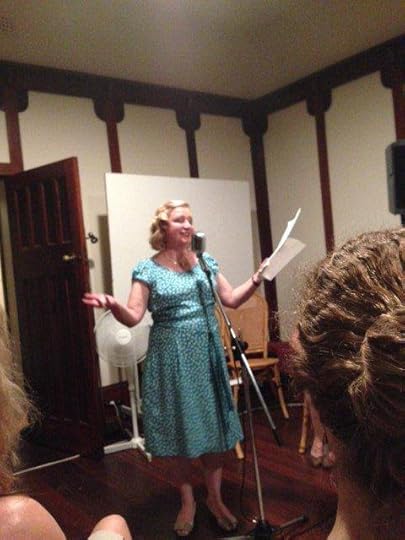
Lovely Emily from Bookcaffe dressed up for the occasion and sold the books
And they’re now on the shelves, in Busselton:
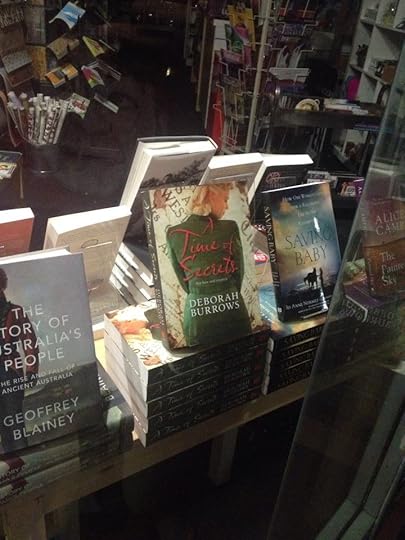
And in Tasmania

And (hopefully) in bookshops all over Australia and New Zealand…
We arrived back in Iffley a week ago, on Monday evening. I had a day to recover from jet-lag (as if!!) and then we flew to Amsterdam for three nights because Toby was presenting a paper at the Academy of the Sciences there. I do love Amsterdam, though.
We wandered around the funky Jordaan. We visited the refurbished Rijksmuseum and saw a special exhibition on early Rembrandt, with a side trip to the beautiful Vermeers. Then we took the tram to the suburbs, to the Miffy shop – de Winkel van Nijntje – to buy presents for some special little girls. Amsterdam is such a photogenic city.
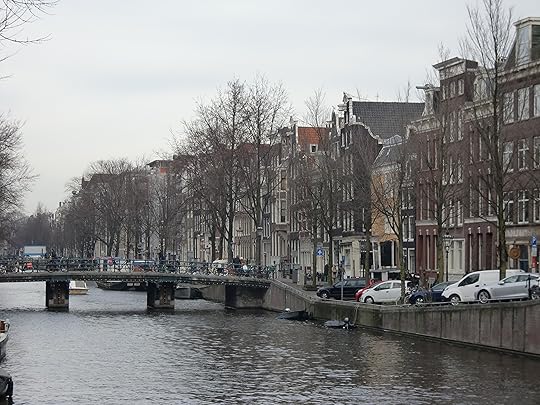

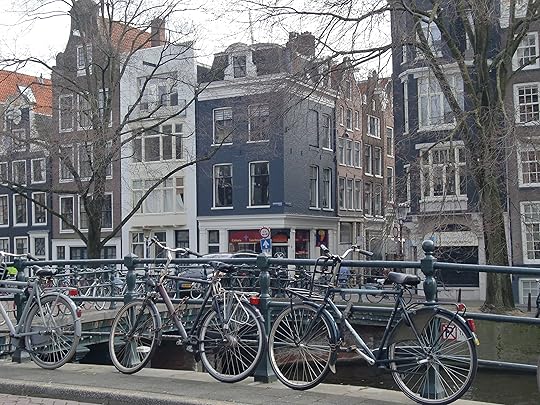

We loved the little plaques in some of the ancient houses:
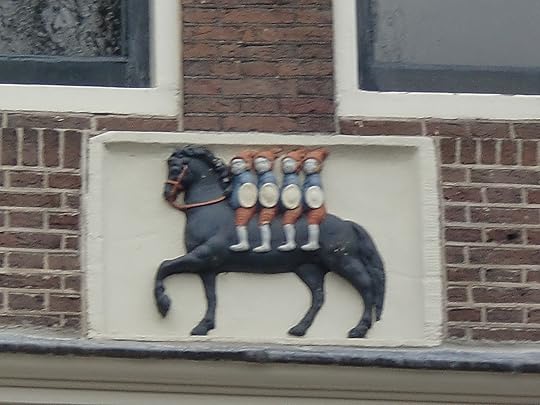

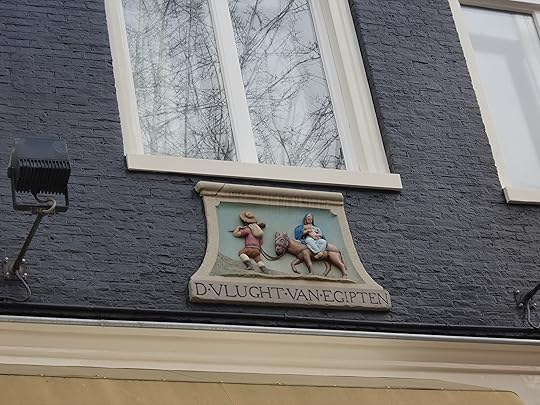

The weather was fine – even sunny on occasion. Here’s Toby outside a little cafe.
Now we’re back in beautiful Iffley and it’s a glorious spring day. The sun is shining and the snowdrops are giving way to daffodils. Birds are chirruping madly in the hedges and the bare branches and there is a sense of anticipation that comes with every spring. St Mary’s churchyard has drifts of snowdrops and the odd daffodil.
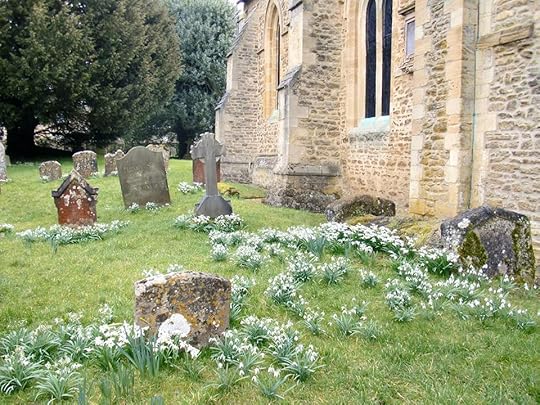
There’s a new book out, The Anchoress, that is making some waves. Well our St Mary’s has an unusual feature – the remains of an anchorite cell, which is shown in the second photo. Iffley’s anchoress was called Annora and she remained in a tiny cell there for nine years or so. Here is an article about Annora:
http://iffley.co.uk/…/08-the-tower-and-the-south-wa…/annora/
And here is where she lived

I love that everywhere you look in England there is a story.
February 19, 2015
Perth in summer = lovely
My sojourn in my hometown of Perth is coming to an end with the summer, as I fly out on 1 March. Back to a cold and wet (but never miserable) England and my husband, Toby, who left on Feb 7 and is much missed. It’s been lovely to spend most of the summer, here in Perth. It is the time when we have our International Arts Festival and people tend to spend as much time as possible in the sunshine, or outside on balmy evenings. Excitement is rising as the publication date of A Time of Secrets draws closer. Tuesday 24 Feb it’ll be in the shops. It’s such a long road to publication that it’s always very exciting to see the novel in print, even after three books! Now, I’ve done a book trailer. Me, myself, alone. It’s a bit rough, but my agent was most impressed. Have a look and tell me what you think: A Time of Secrets – Trailer 2 – Small 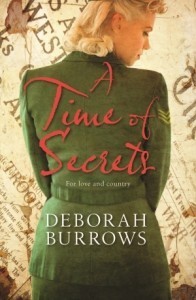 The first thing we did when we arrived home was to attend two weddings. The daughter of my dear friends was married on Saturday 3 January, and the reception was in the grounds of one of the very few older buildings left in “tear it down and put up something brand-new because it must be better” Perth.
The first thing we did when we arrived home was to attend two weddings. The daughter of my dear friends was married on Saturday 3 January, and the reception was in the grounds of one of the very few older buildings left in “tear it down and put up something brand-new because it must be better” Perth. 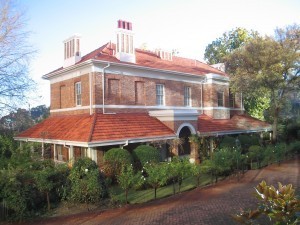 The Bishop’s House was built in 1859 for Matthew Hale, the first Anglican Archbishop of Perth. By Perth standards, this is ancient! The city was first settled in 1829, and was effectively a tent city for the first years. The lovely residence was built by ticket of leave men – effectively convicts on parole. Perth wasn’t founded by convicts, but it was very poor for the first few decades and there was a shortage of labour. What to do? They’d stopped sending convicts to New South Wales in 1840, but we in the West thought that convicts were an excellent solution to our problems and transportation to Western Australia began in 1850 and continued until 1868 (when transportation of convicts ceased for good in Britain). During that period, 9,668 convicts were transported to WA and most spent very little time in prison as they were needed as workers. The old house was used for various purposes after the last bishop to use it as a residence died in 1946, and I remember it as rather a sad place, falling into disrepair when I was a child and teenager. It was saved by an English lord – Lord McAlpine – who leased it in 1982 and renovated it beautifully. In 1999 it was sold to the Multiplex and Hawaiian Property groups, who promptly built two (a nine storey and a larger twenty-seven storey) modern office towers on the land behind. In 2010 it was converted into a posh restaurant, Lamont’s Bishop’s House. The wedding reception was in the open-air courtyard behind the house, which is just behind from where this photo was taken, and the food was very delicious. The next wedding was my beautiful niece Susannah to the dashing Daniel. The service was in her grandparent’s back garden, which looked gorgeous and the bride looked so lovely I cried.
The Bishop’s House was built in 1859 for Matthew Hale, the first Anglican Archbishop of Perth. By Perth standards, this is ancient! The city was first settled in 1829, and was effectively a tent city for the first years. The lovely residence was built by ticket of leave men – effectively convicts on parole. Perth wasn’t founded by convicts, but it was very poor for the first few decades and there was a shortage of labour. What to do? They’d stopped sending convicts to New South Wales in 1840, but we in the West thought that convicts were an excellent solution to our problems and transportation to Western Australia began in 1850 and continued until 1868 (when transportation of convicts ceased for good in Britain). During that period, 9,668 convicts were transported to WA and most spent very little time in prison as they were needed as workers. The old house was used for various purposes after the last bishop to use it as a residence died in 1946, and I remember it as rather a sad place, falling into disrepair when I was a child and teenager. It was saved by an English lord – Lord McAlpine – who leased it in 1982 and renovated it beautifully. In 1999 it was sold to the Multiplex and Hawaiian Property groups, who promptly built two (a nine storey and a larger twenty-seven storey) modern office towers on the land behind. In 2010 it was converted into a posh restaurant, Lamont’s Bishop’s House. The wedding reception was in the open-air courtyard behind the house, which is just behind from where this photo was taken, and the food was very delicious. The next wedding was my beautiful niece Susannah to the dashing Daniel. The service was in her grandparent’s back garden, which looked gorgeous and the bride looked so lovely I cried.
Their reception was also open-air – we like to get outside as much as possible in our gorgeous summer. It was on the terrace of a local golf club,which had views like this: 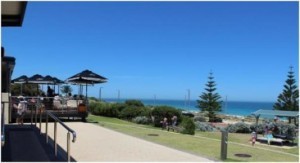 Now for important matters. After our two weddings it was time for important matters, like publcity photos for ME! Here they are, courtesy of Warnock Imagery, in the lovely home where we’ve been staying.
Now for important matters. After our two weddings it was time for important matters, like publcity photos for ME! Here they are, courtesy of Warnock Imagery, in the lovely home where we’ve been staying. 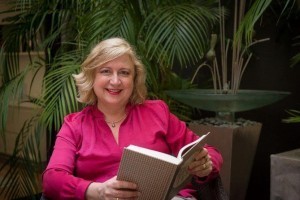
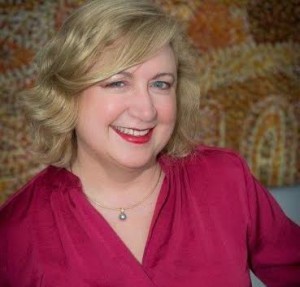
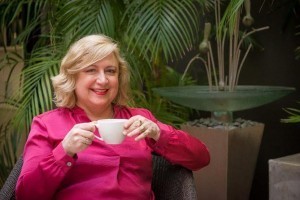 But it is Australia, and creepy crawlies are everywhere. We found a couple of large Huntsman spiders on two consecutive nights in the bedroom. Actually, I’m not too scared of these gentle giants. Give me a large glass and a piece of board and I’ll catch ‘em and stick ‘em outside. Come to think of it – maybe it was the SAME spider each night who’d come back after being taken outside…
But it is Australia, and creepy crawlies are everywhere. We found a couple of large Huntsman spiders on two consecutive nights in the bedroom. Actually, I’m not too scared of these gentle giants. Give me a large glass and a piece of board and I’ll catch ‘em and stick ‘em outside. Come to think of it – maybe it was the SAME spider each night who’d come back after being taken outside…  Now, Toby and I were in Perth in summer. The beach calls, “come to me, come to me”. So one Friday evening, just before Toby left, we bought some fish and chips and went to Cottesloe Beach to watch the sunset. The fish and chips were sublime:
Now, Toby and I were in Perth in summer. The beach calls, “come to me, come to me”. So one Friday evening, just before Toby left, we bought some fish and chips and went to Cottesloe Beach to watch the sunset. The fish and chips were sublime: 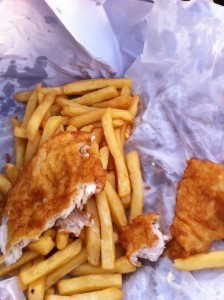 And the beach was just perfect. A Time of Secrets is set in Melbourne, but a couple of the main characters come from Perth. In one scene Eric tells Stella that his house is “just up from Cottesloe Beach. That’s such a beautiful beach. White sand, pine trees, clear water. You’d love it.” I love it … and here are the photos to prove the truth of Eric’s statement
And the beach was just perfect. A Time of Secrets is set in Melbourne, but a couple of the main characters come from Perth. In one scene Eric tells Stella that his house is “just up from Cottesloe Beach. That’s such a beautiful beach. White sand, pine trees, clear water. You’d love it.” I love it … and here are the photos to prove the truth of Eric’s statement 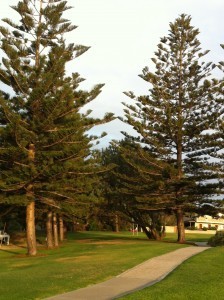
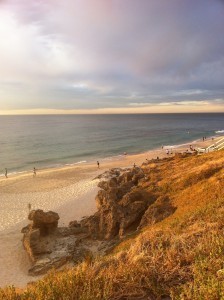
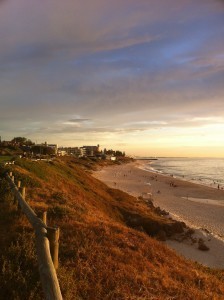 Selfie on the beach. One day I’ll get the hang of them:
Selfie on the beach. One day I’ll get the hang of them: 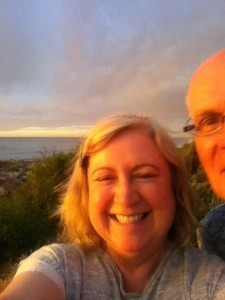 The sun sets over the ocean, here in the West, and it’s a glorious sight:
The sun sets over the ocean, here in the West, and it’s a glorious sight: 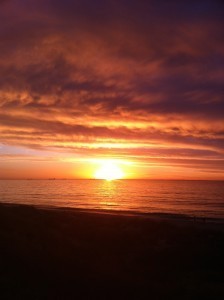 Another beach we visited is Safety Bay, where my step-daughter, Lucy, lives with Brett and their three darlings, Jacob, Olive and Sunday. We visited one hot day for a frolic on the beach. Now that sky is a Perth summer sky to me!!
Another beach we visited is Safety Bay, where my step-daughter, Lucy, lives with Brett and their three darlings, Jacob, Olive and Sunday. We visited one hot day for a frolic on the beach. Now that sky is a Perth summer sky to me!! 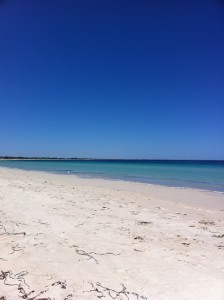
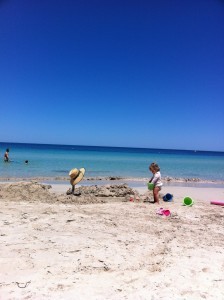
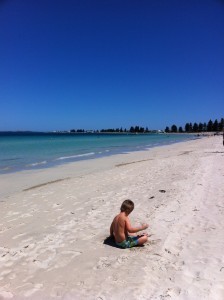 The other excitement of my trip is the Book Launch, which is to take place next Tuesday. We settled on Mattie Furphy House, which is an old Arts and Crafts house built for his brother by Joseph Furphy, who wrote under the name of Tom Collins. His most famous work was For the Term of His Natural Life. The Fellowship of Australian Writers WA has its headquarters in an old house nearby (Tom Collins House) and uses Mattie Furphy House for functions and Writers in Residence. It’s a gorgeous place, set in some natural bushland near a park. If you can’t read the sign it says: “Beware Venomous Snakes”. That’s not a joke, by the way. But if my guests keep to the path it should be fine…
The other excitement of my trip is the Book Launch, which is to take place next Tuesday. We settled on Mattie Furphy House, which is an old Arts and Crafts house built for his brother by Joseph Furphy, who wrote under the name of Tom Collins. His most famous work was For the Term of His Natural Life. The Fellowship of Australian Writers WA has its headquarters in an old house nearby (Tom Collins House) and uses Mattie Furphy House for functions and Writers in Residence. It’s a gorgeous place, set in some natural bushland near a park. If you can’t read the sign it says: “Beware Venomous Snakes”. That’s not a joke, by the way. But if my guests keep to the path it should be fine… 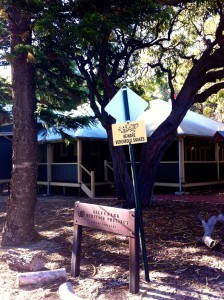 The house is gorgeous inside, and I’m hoping for a fabulous launch:
The house is gorgeous inside, and I’m hoping for a fabulous launch:  The invitation is lovely also: DB ATOS DL INVITE FA (1) (1) Next time I’ll write about the Launch and the Giants who visited Perth last week…
The invitation is lovely also: DB ATOS DL INVITE FA (1) (1) Next time I’ll write about the Launch and the Giants who visited Perth last week…
January 1, 2015
Happy New Year
Happy New Year, friends. I hope that it is joyful, peaceful and filled with dreams come true! We spent the New Year in Dubai airport, on our way home for the summer holidays, in the little Moet & Chandon stall.
We arrived in Perth last night. Today it’s 25C max in Perth – a beautiful summer day.
And this is what we have come to. At the moment, Perth seems just perfect:
Perth was originally founded by Captain James Stirling in 1829 as the administrative centre of the Swan River Colony, and gained city status in 1856. The city is named for Perth, Scotland, by influence of Sir George Murray, then British Secretary of State for War and the Colonies.
Perth became known worldwide as the “City of Light” when city residents lit their house lights and streetlights as American astronaut John Glenn passed overhead while orbiting the earth on Friendship 7 in 1962.
Perth is always in the top 10 of the list of the world’s most liveable cities, and I can verify that it is a great place in which to live. The Swan River is the feature of the centre, and we live fairly close to it. I love the river.
Our closest beach is beautiful Cottesloe, pictured here in the daytime and at sunset. Just perfect! We’ll be heading to the beach very soon indeed…
So, I’ll be posting from Perth for the next couple of months. I’ll still be writing, as well as reading and catching up with friends. And working at my legal job (sigh!). Then home to Oxford in March for a beautiful English spring…
December 27, 2014
Christmas in Iffley
We had a lovley Christmas in Iffley. Toby’s sister, Sophie, has joined us for a week and celebrated with us.
On 22 December we went to a candlelit concert in Exeter College chapel. The music was sumptuous and the setting sublime. A lovely Nativity scene had been set up under the altar.
Oxford was getting into Christmas mode – i.e., eating. Bambi and Porky and some friends were hanging around the Covered Markets (don’t look if you’re vegetarian!). I like the Covered Market and the sense of age that comes from such scenes. Here is some information about the Covered Market: http://www.oxfordcity.co.uk/shops/mar...
On 23 December we took Sophie for a drive to one of my favourite villages, Dorchester. I learned how to take a selfie by watching Toby’s hand and not the iphone:
We went on to Basildon Park, where some of Downton Abbey and the Keira Knightly Pride and Prejudice was filmed. A beautiful country house, now run by the National Trust.
It was made beautiful for Christmas, with Christmas trees galore:
I loved this knitted nativity scene:
On Christmas Eve we drove into the Cotswolds, to my favourite village Lower Slaughter, where the houses exhibited beautiful wreaths:
I spent Christmas Day with Toby and Sophie and we had a typical English Christmas, namely an enormous lunch (at the lovely Hawkwell House Hotel) followed by a walk along the river, and then an evening at home watching the Christmas specials on TV: Dr Who Christmas Special, Call the Midwife Christmas Special and Downton Abbey Christmas Special.
This is Hawkwell House:
And this is Christmas dinner: entree, main and dessert:
Yesterday we went for a short walk in the cold through the ususually deserted village:
We walked to a chilly Iffley Lock:
My sister-in-law became the Goose Girl:
Then we showed Sophie our beautiful 12C parish church, St Mary’s, which dates from 1170. It has amazing carvings around its doors, as explained here: http://greatenglishchurches.co.uk/htm....
The south door. This arguably the finest part of the church. All manner of mythical figure is here, but little that is overtly religious! From its fine condition one would expect it to have been re-carved but it was in fact protected by a porch for a many centuries and was carved from particularly hard stone.
Inside it has some beautiful contemporary stained glass windows.
Outside it has a yew tree that is older than the church, a lamp post out of CS Lewis, and an Ent (aka a horse chestnut, planted when the village school was opened in 1838).
December 21, 2014
Last week in Cambridge
Toby had some work to do in the library at Cambridge University, so we drove over to the east last Sunday and spent three nights in a little village called Heydon, in a converted barn. The B&B looked like something straight out of a fairy tale:
And our little barn was very comfortable, too:
We caught up with our friends John and Rosemary, who live near Cambridge, for an early Christmas lunch at Wimpole Hall on Monday. And that afternoon we went into Grantchester to look around:
The village of Grantchester was imortalised in the poem by Rupert Brooke, ‘The Old Vicarage, Grantchester’, and Brooke’s statue stands outside the Old Vicarage, which is now owned by Lord Jeffrey Archer. The poem was written in 1912, when Brooke was in Berlin and it describes his longing for England and the village. Brooke was killed in World War 1 at the age of 27.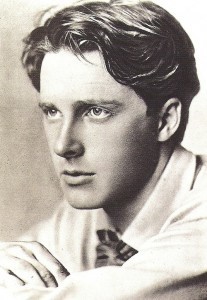
I tried to photograph the scenes mentioned in the poem. The moon photo isn’t mine, but it is too beautiful to miss out, and the woodcut is by Gwen Ravarat, a grand-daughter of Charles Darwin. The other photos are mine.
from: The Old Vicarage, Grantchester
(Café des Westens, Berlin, May 1912)
Ah God! to see the branches stir
Across the moon at Grantchester!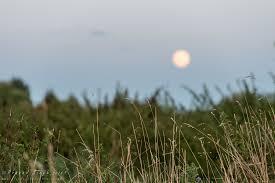
To smell the thrilling-sweet and rotten
Unforgettable, unforgotten
River-smell, and hear the breeze
Sobbing in the little trees.
Say, do the elm-clumps greatly stand
Still guardians of that holy land?
The chestnuts shade, in reverend dream,
The yet unacademic stream?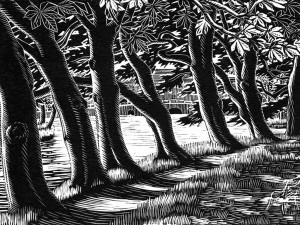
Is dawn a secret shy and cold
Anadyomene, silver-gold?
And sunset still a golden sea
From Haslingfield to Madingley?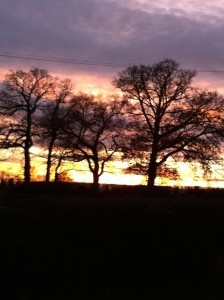
And after, ere the night is born,
Do hares come out about the corn?
Oh, is the water sweet and cool,
Gentle and brown, above the pool?
And laughs the immortal river still
Under the mill, under the mill?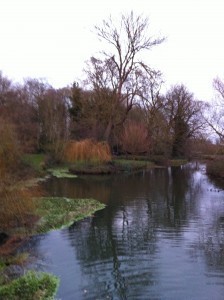
Say, is there Beauty yet to find?
And Certainty? and Quiet kind?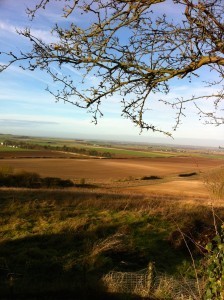
Deep meadows yet, for to forget
The lies, and truths, and pain?… oh! yet
Stands the Church clock at ten to three?
And is there honey still for tea?